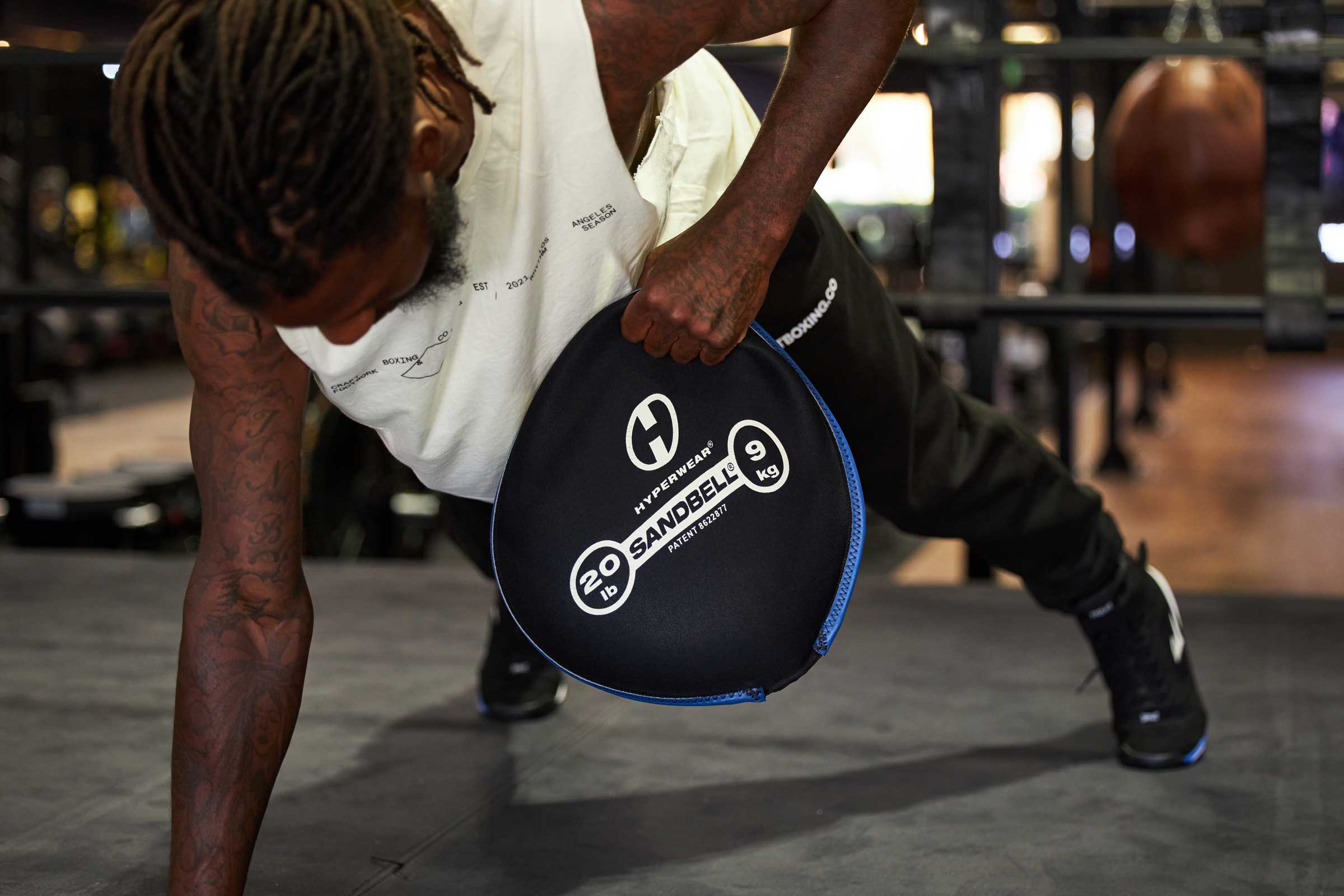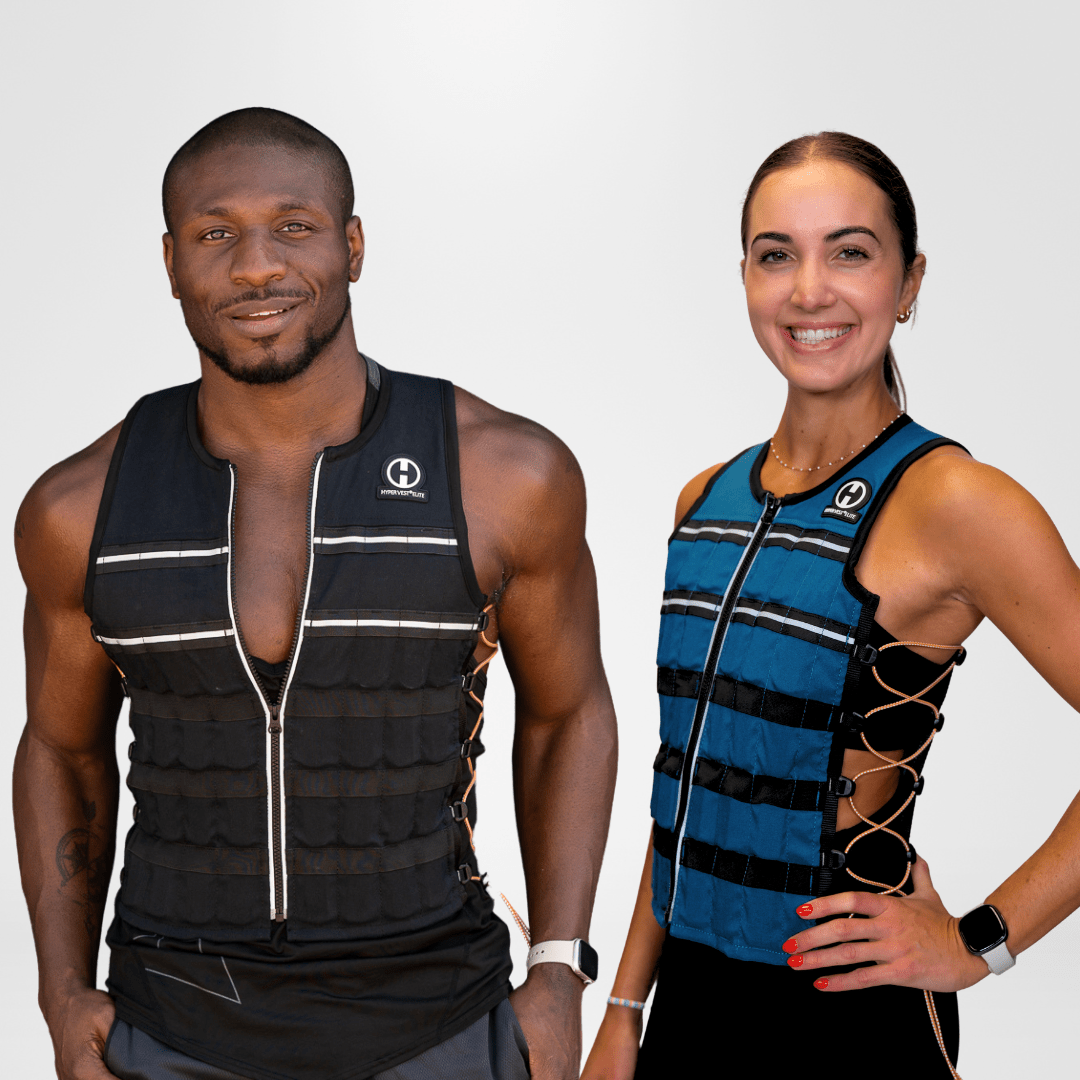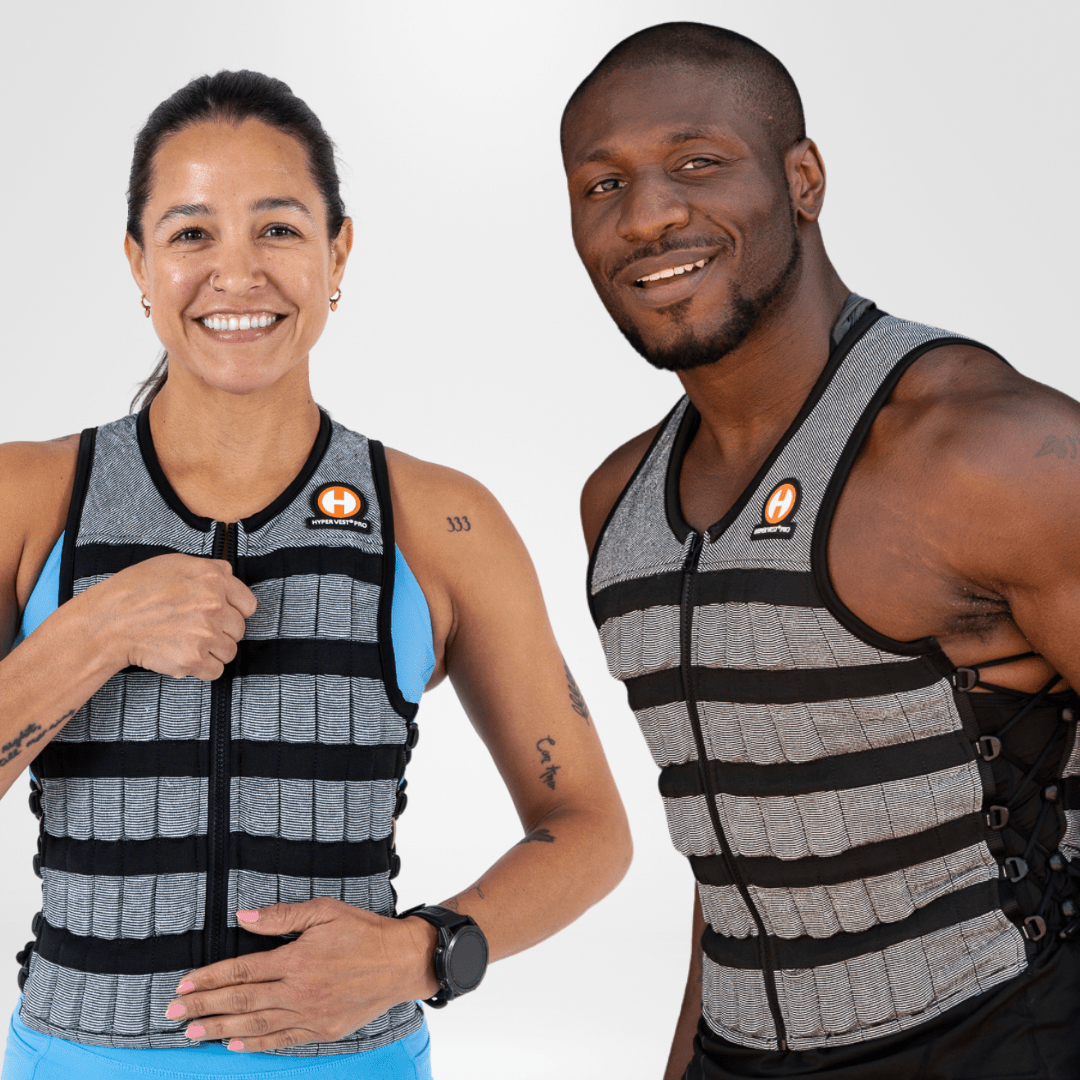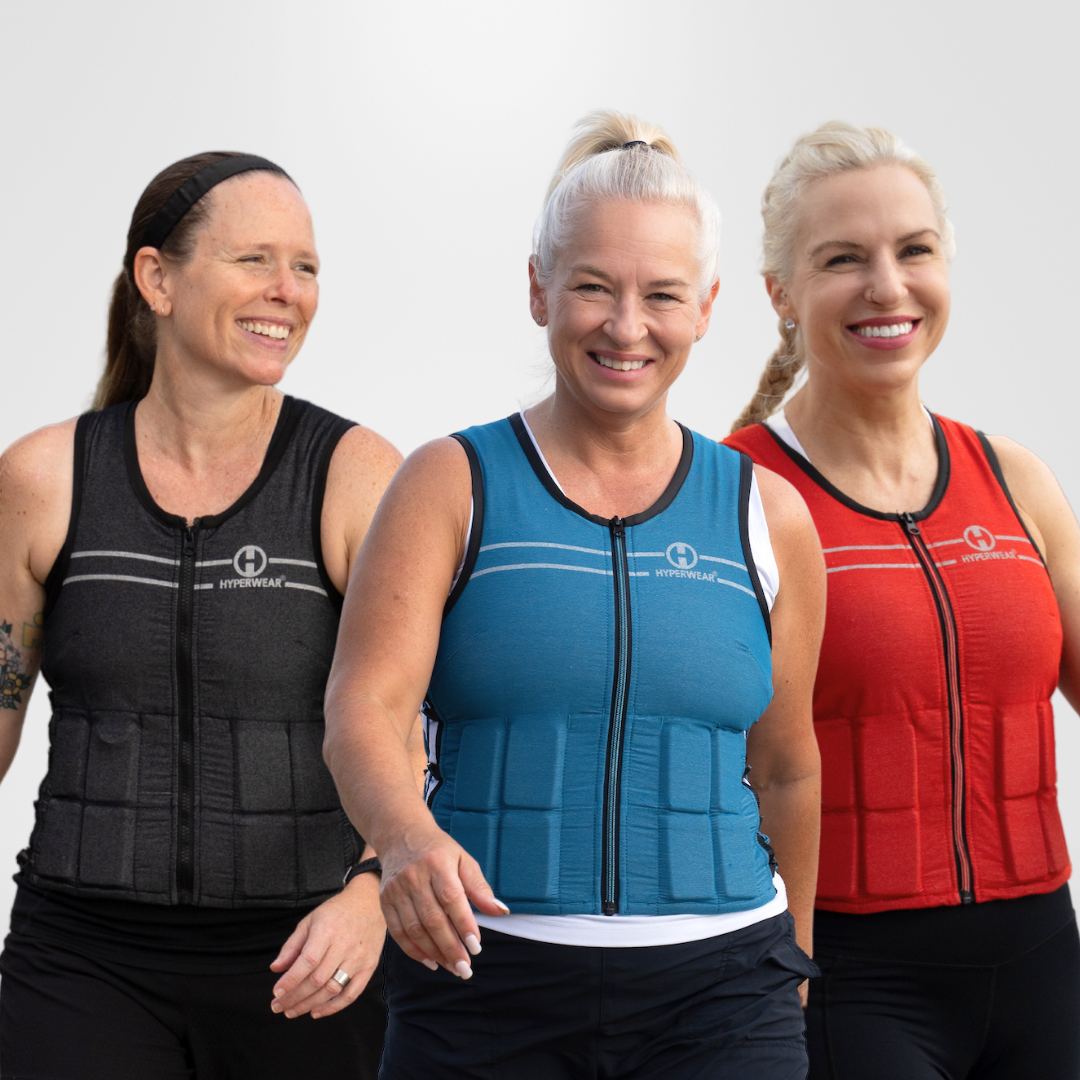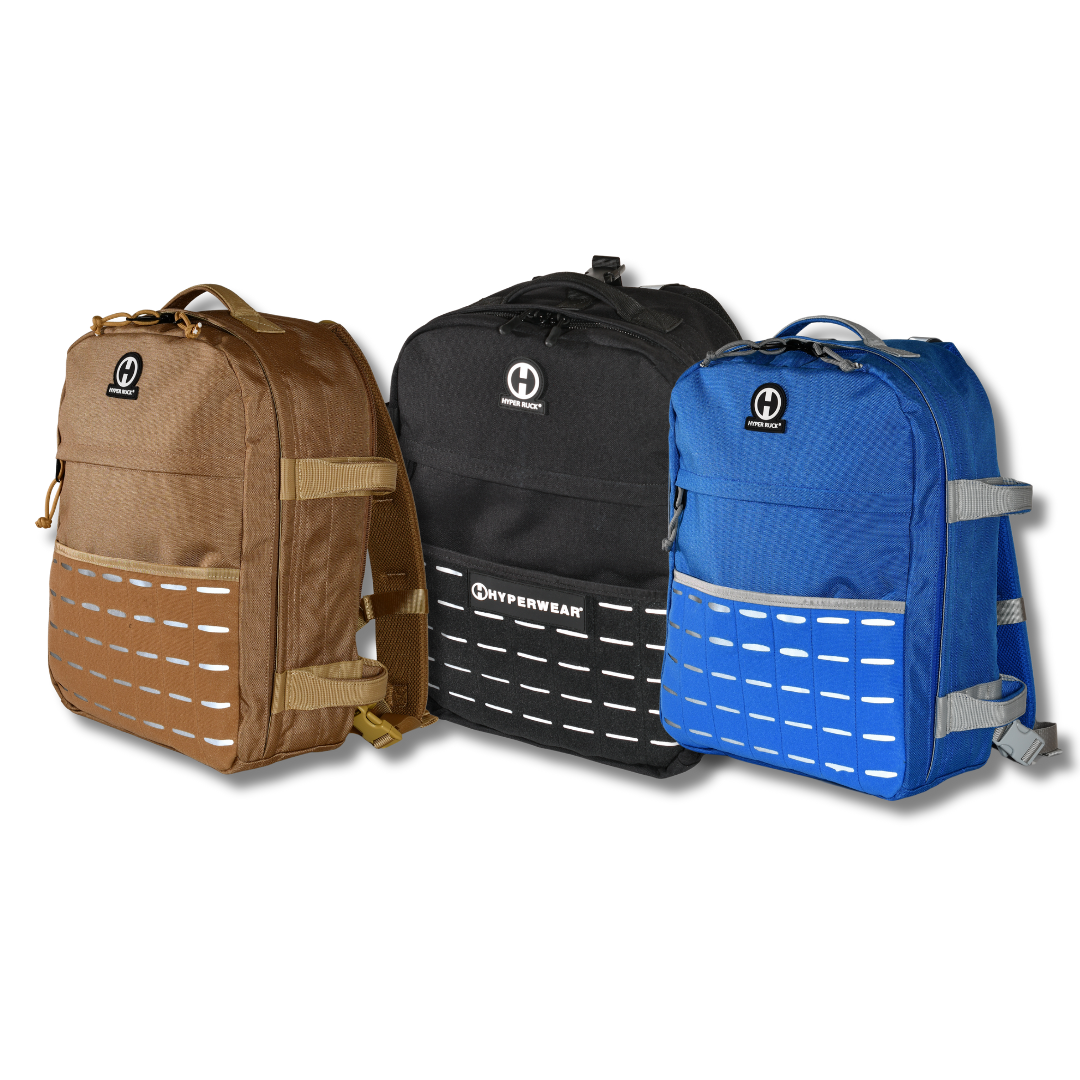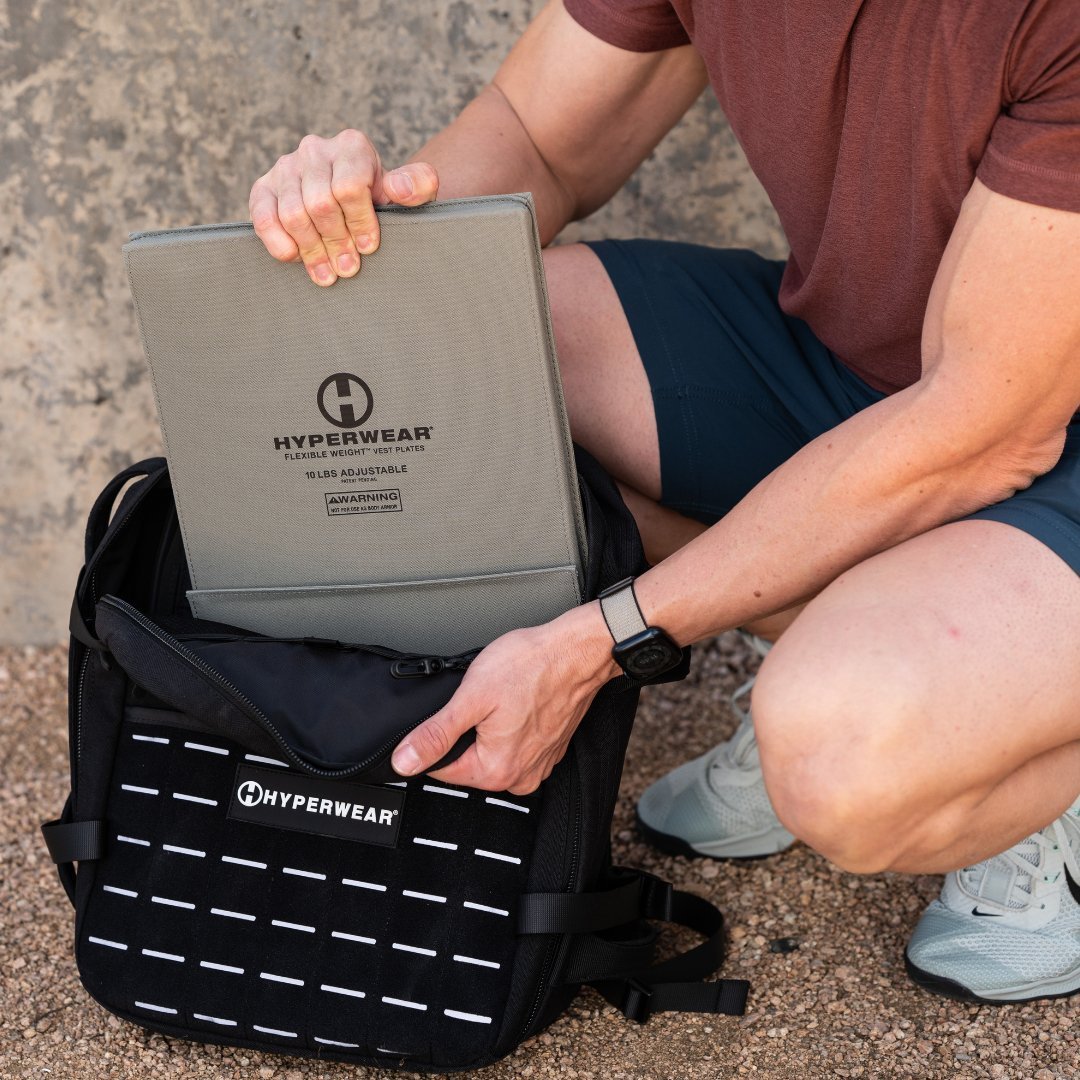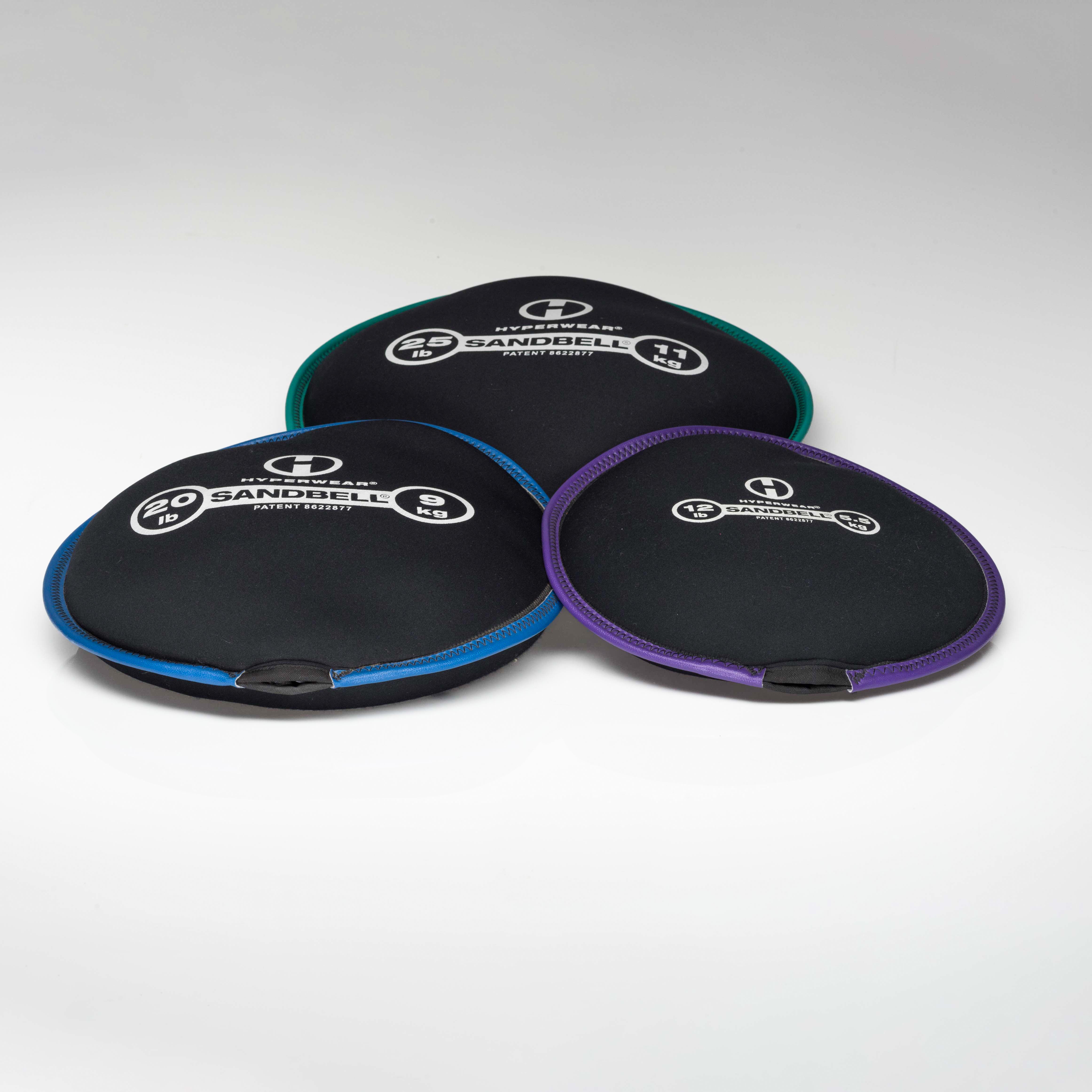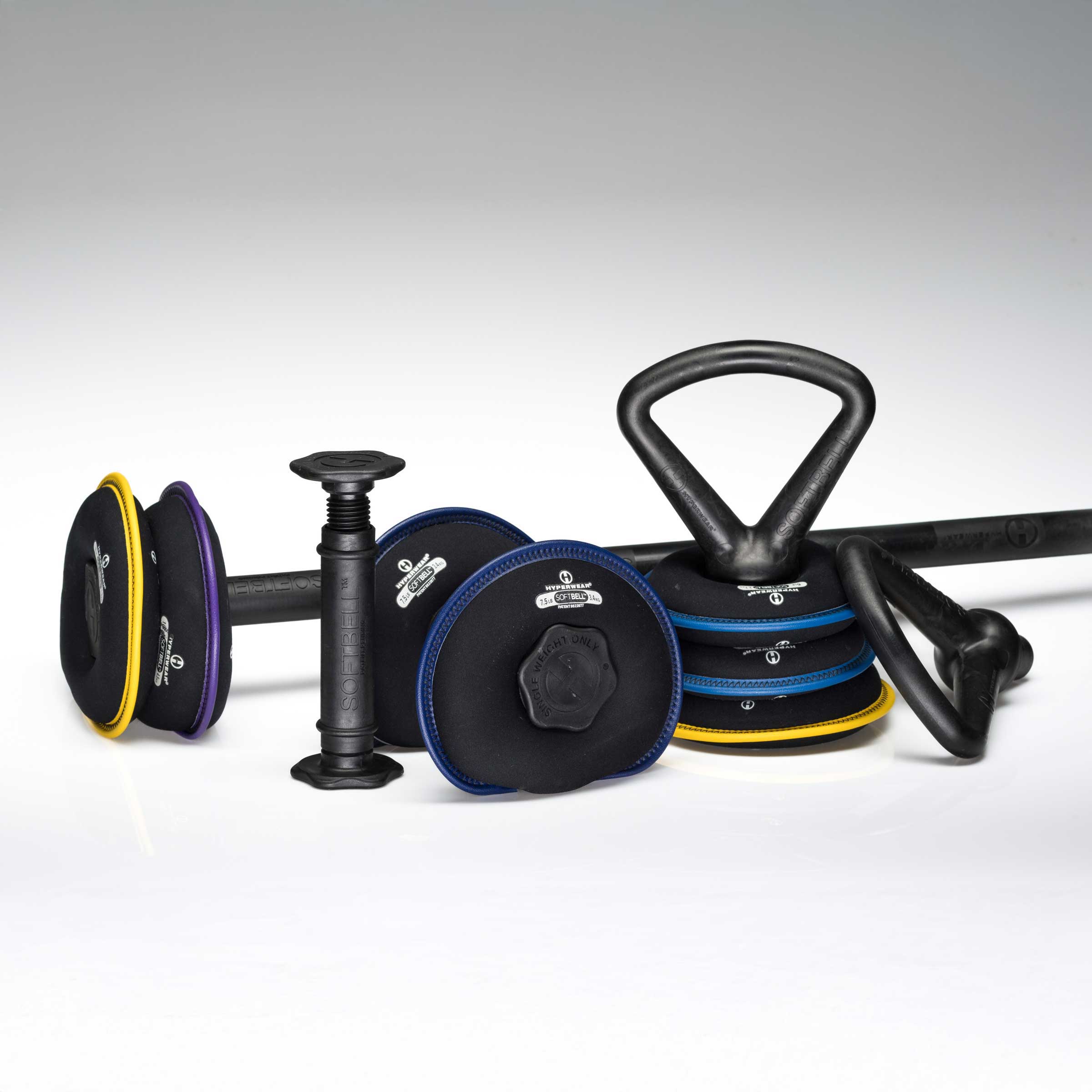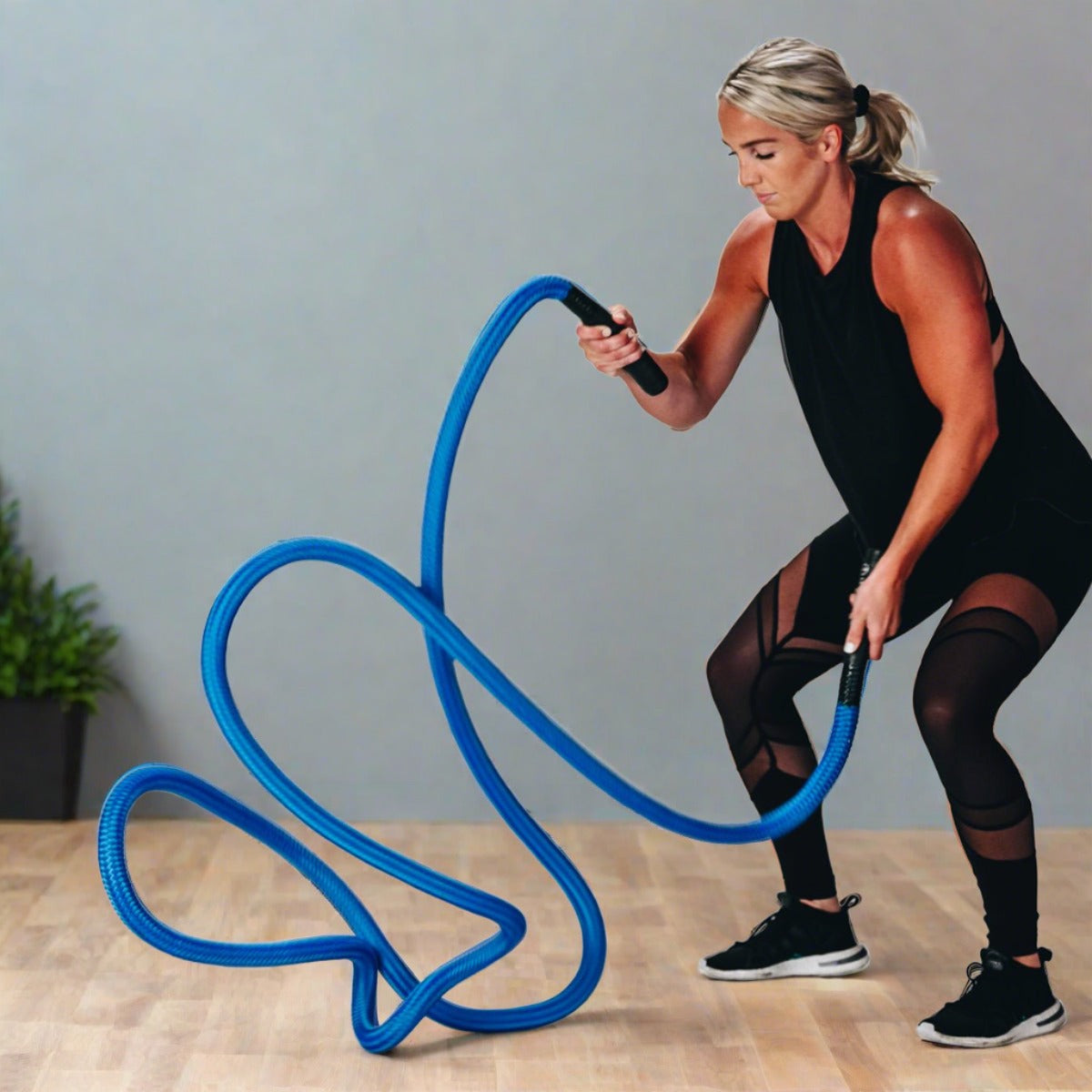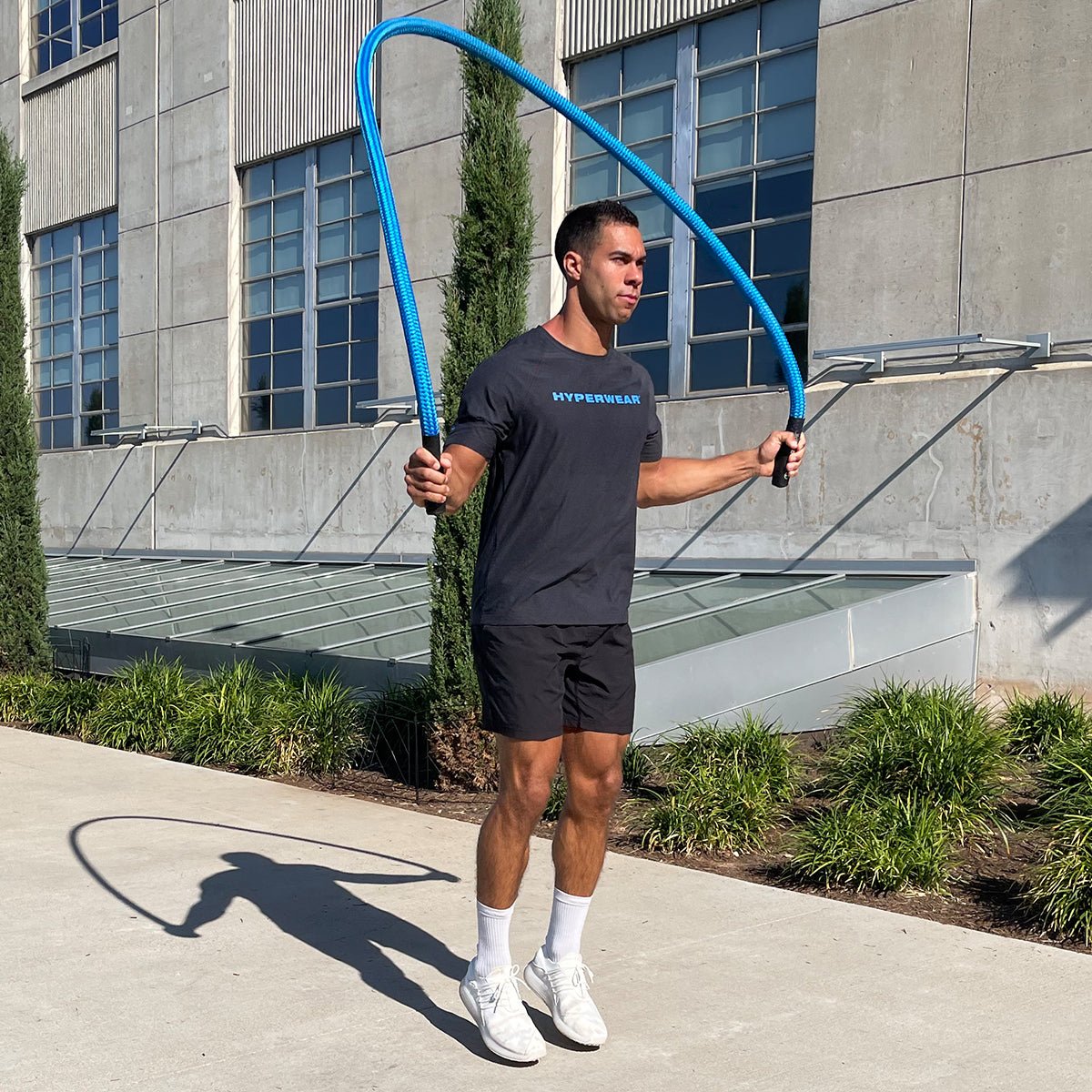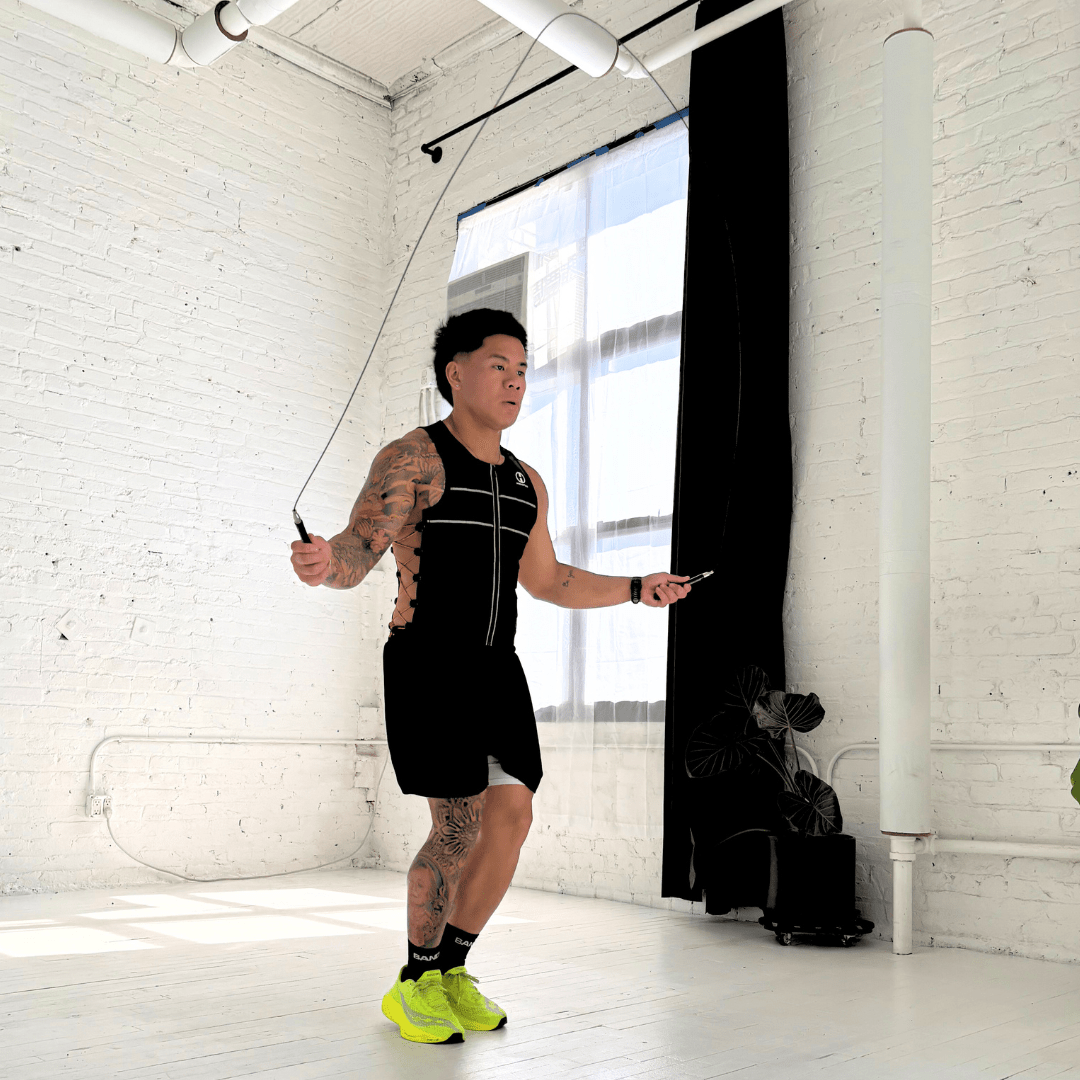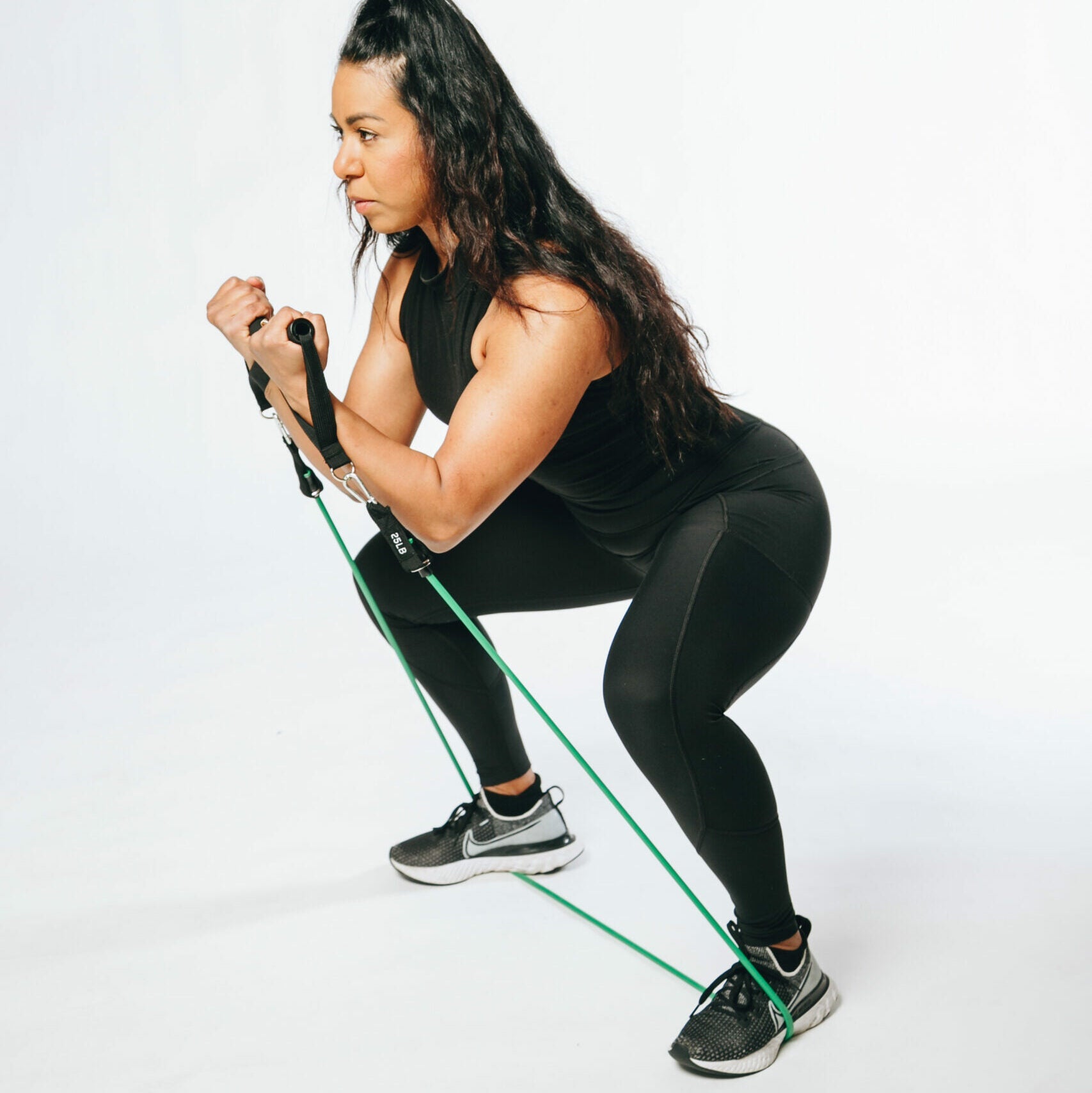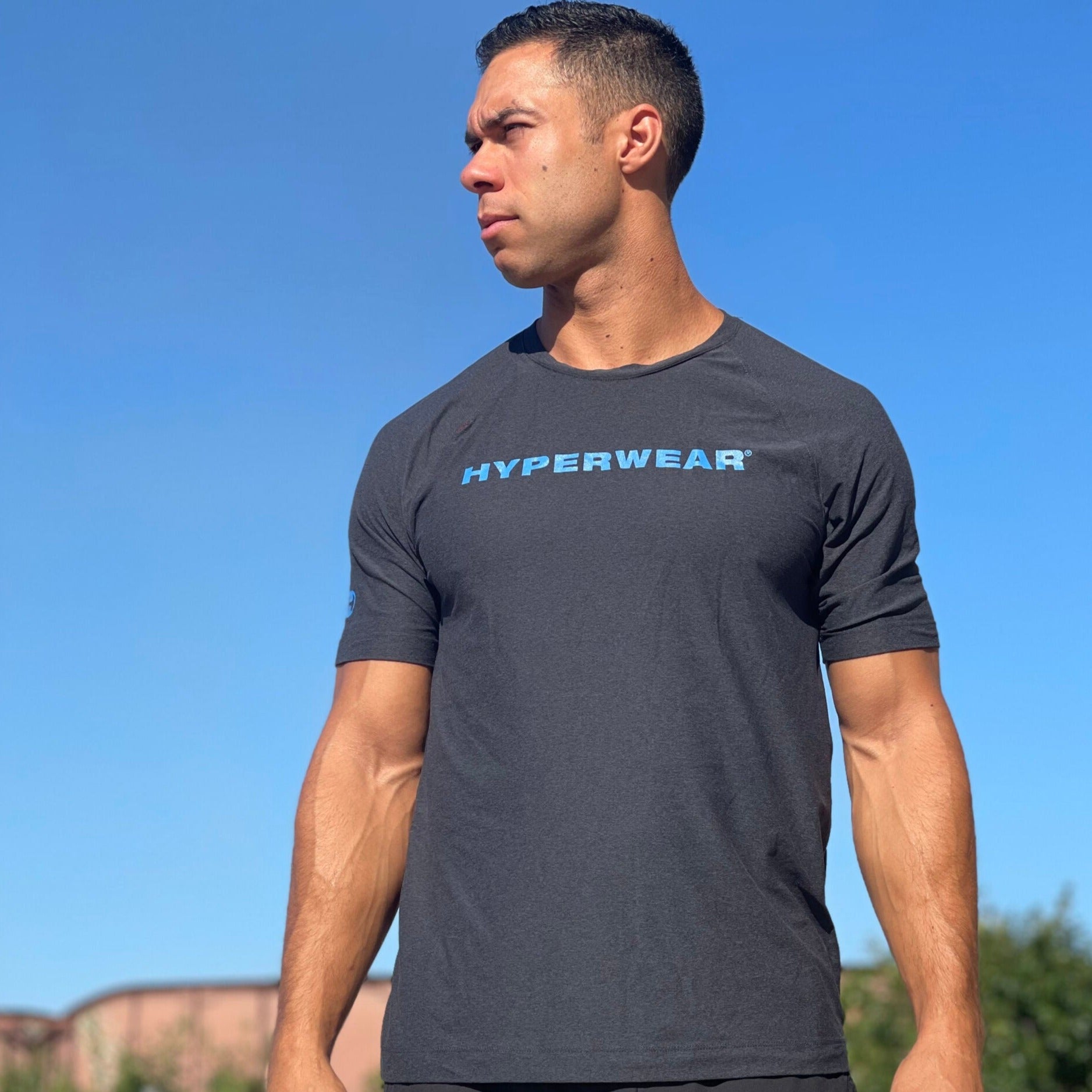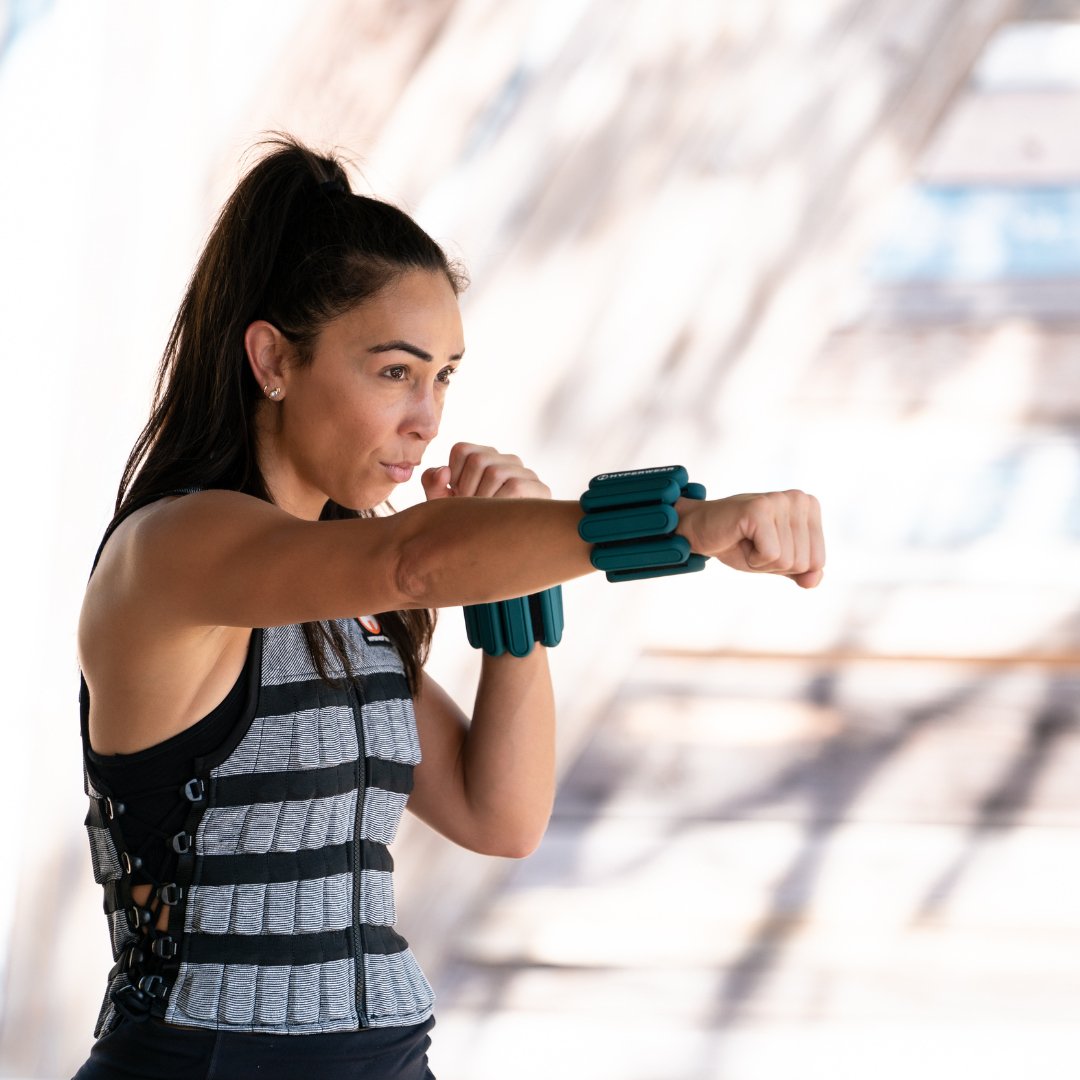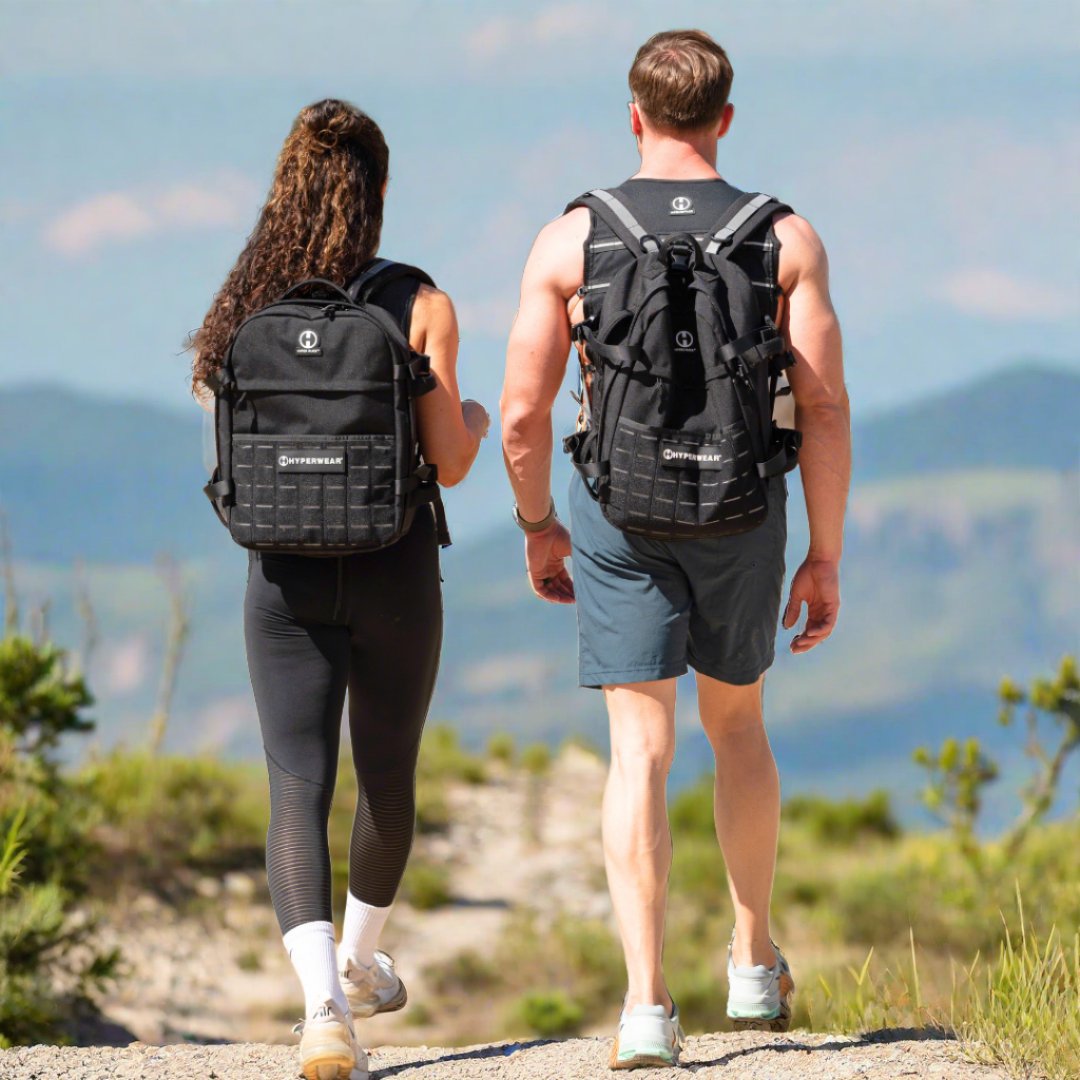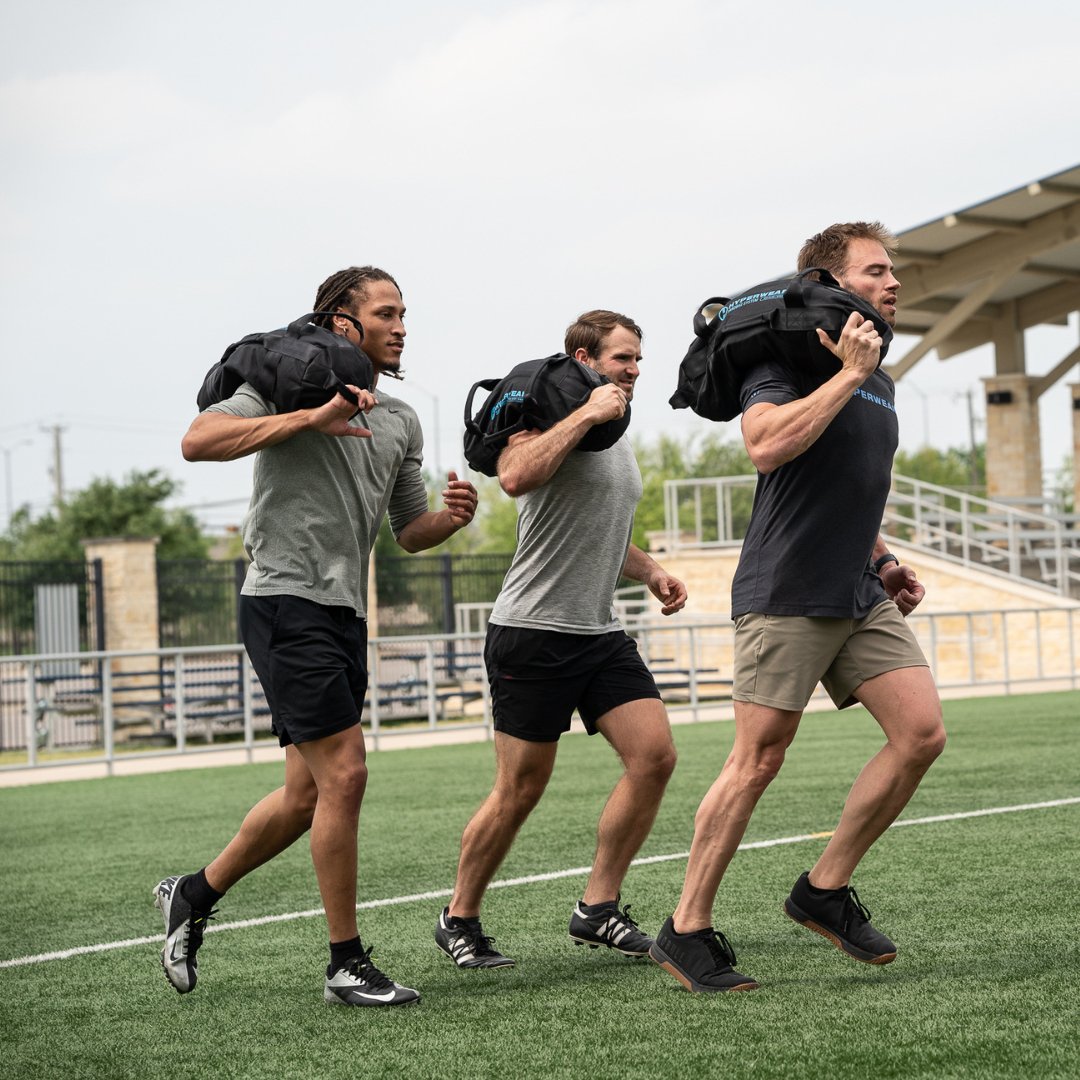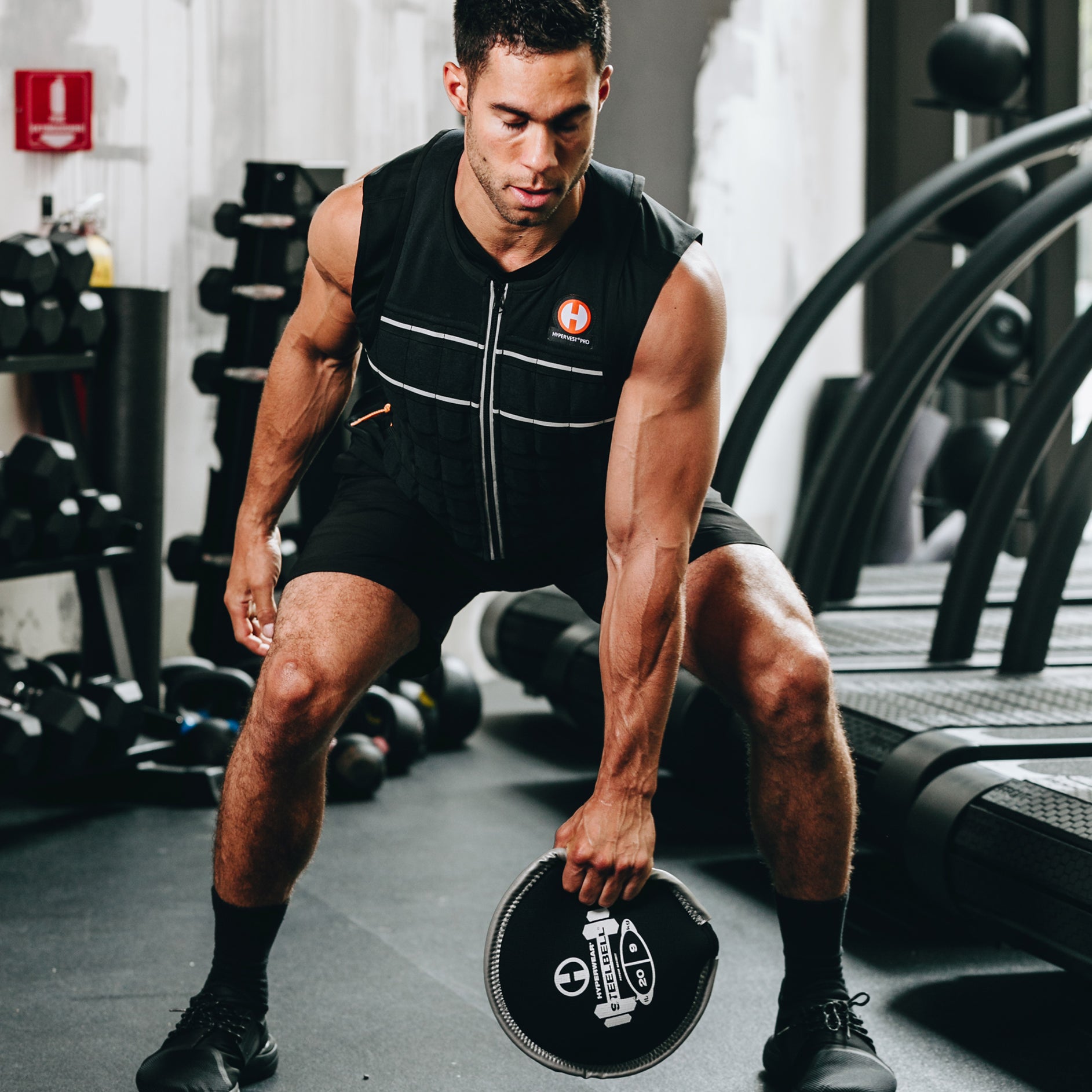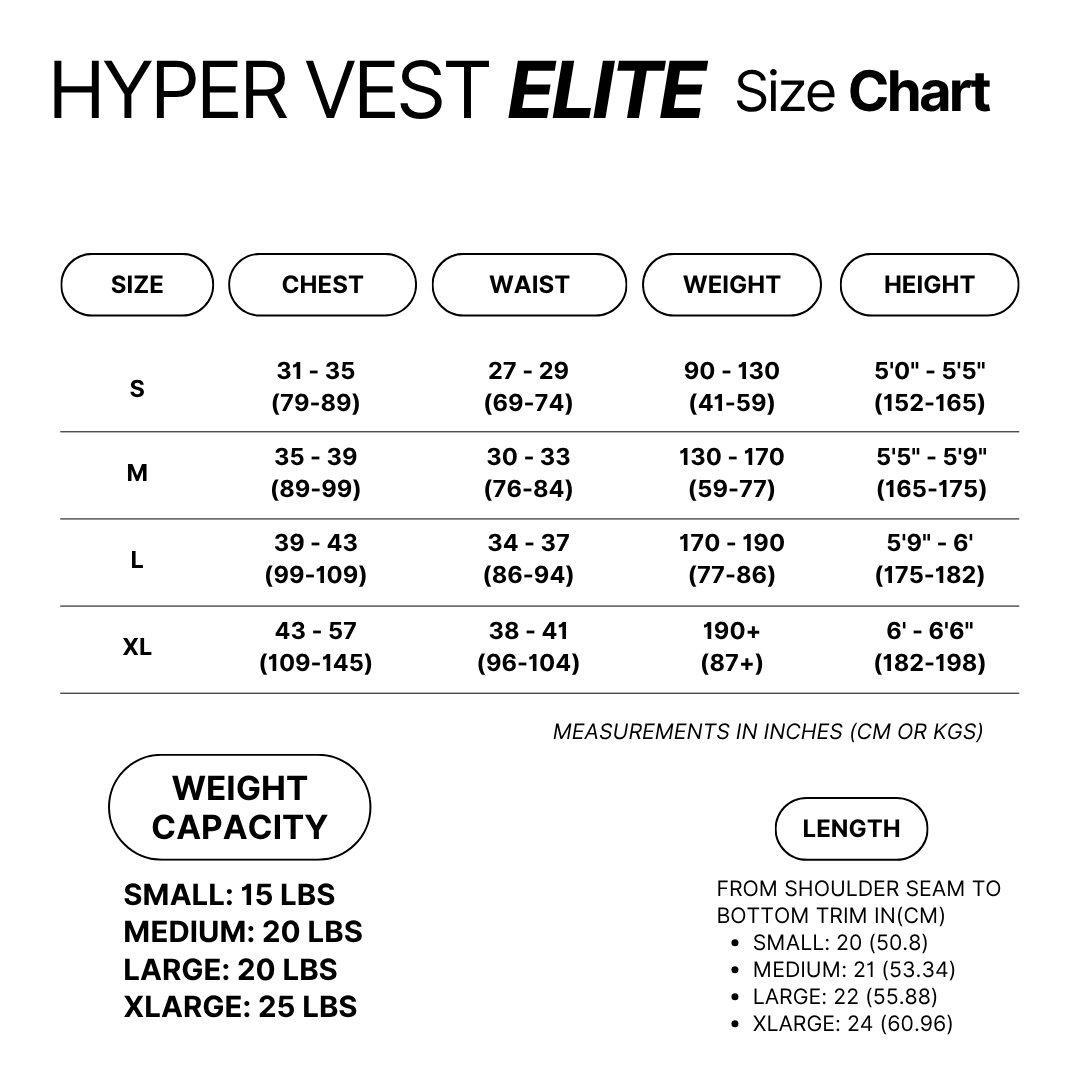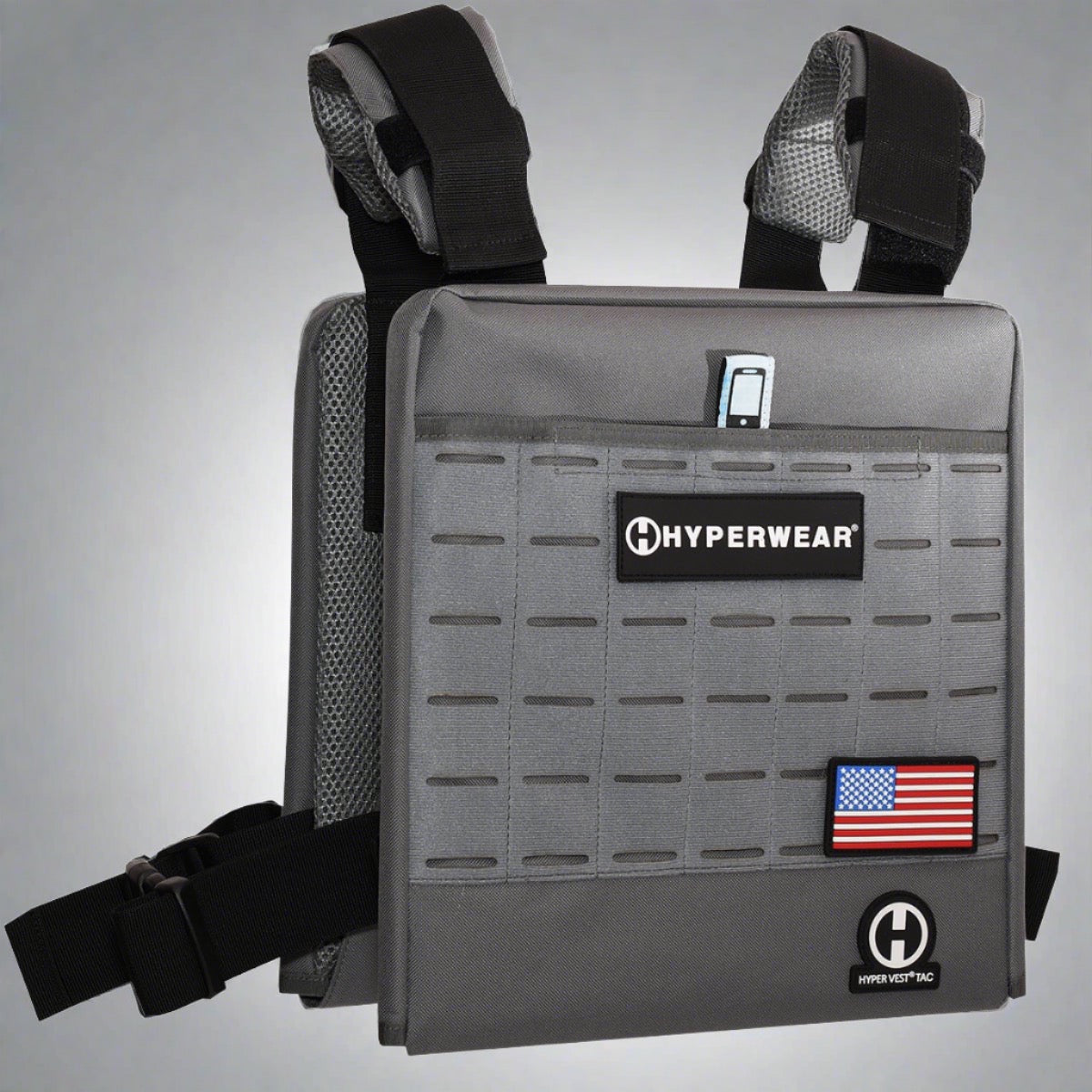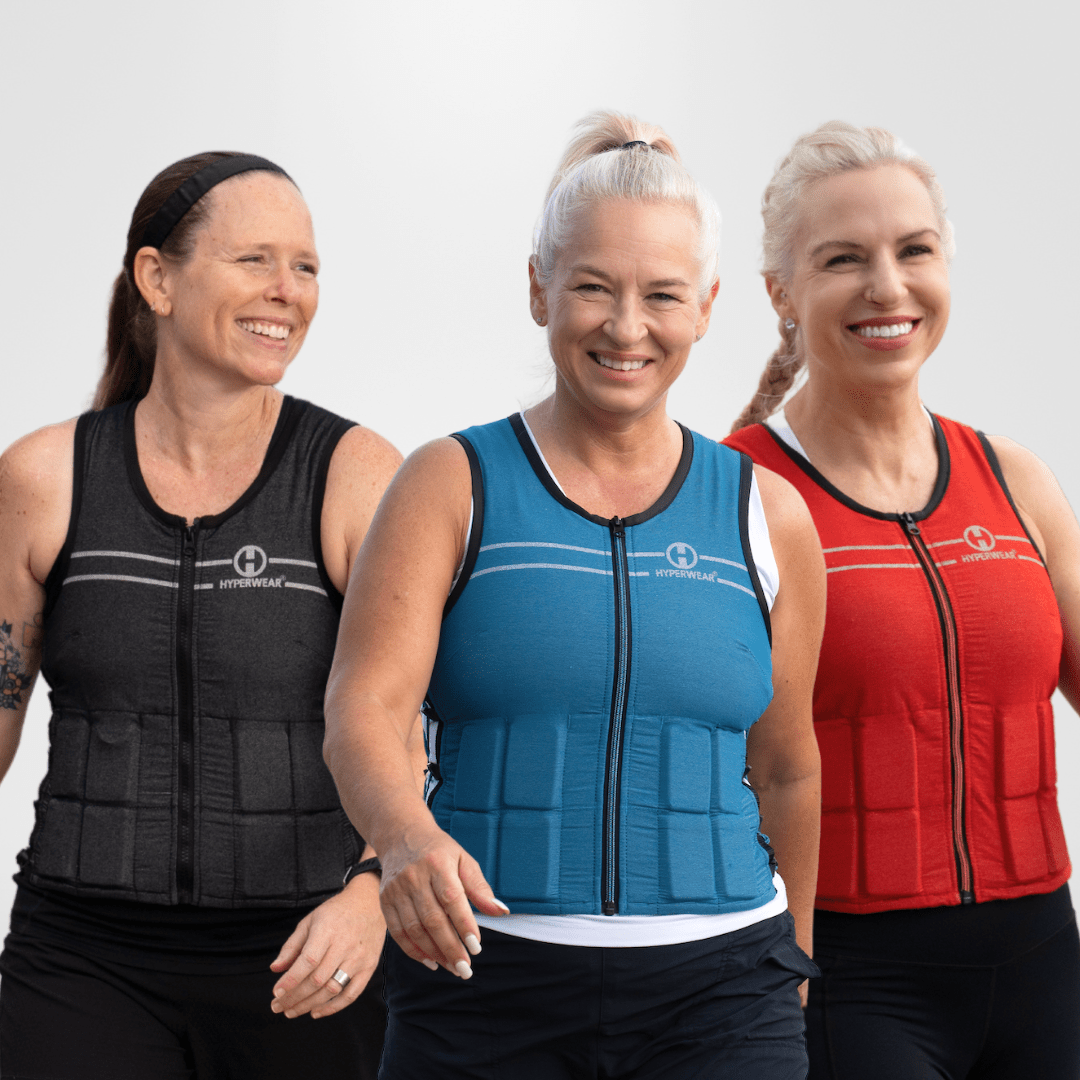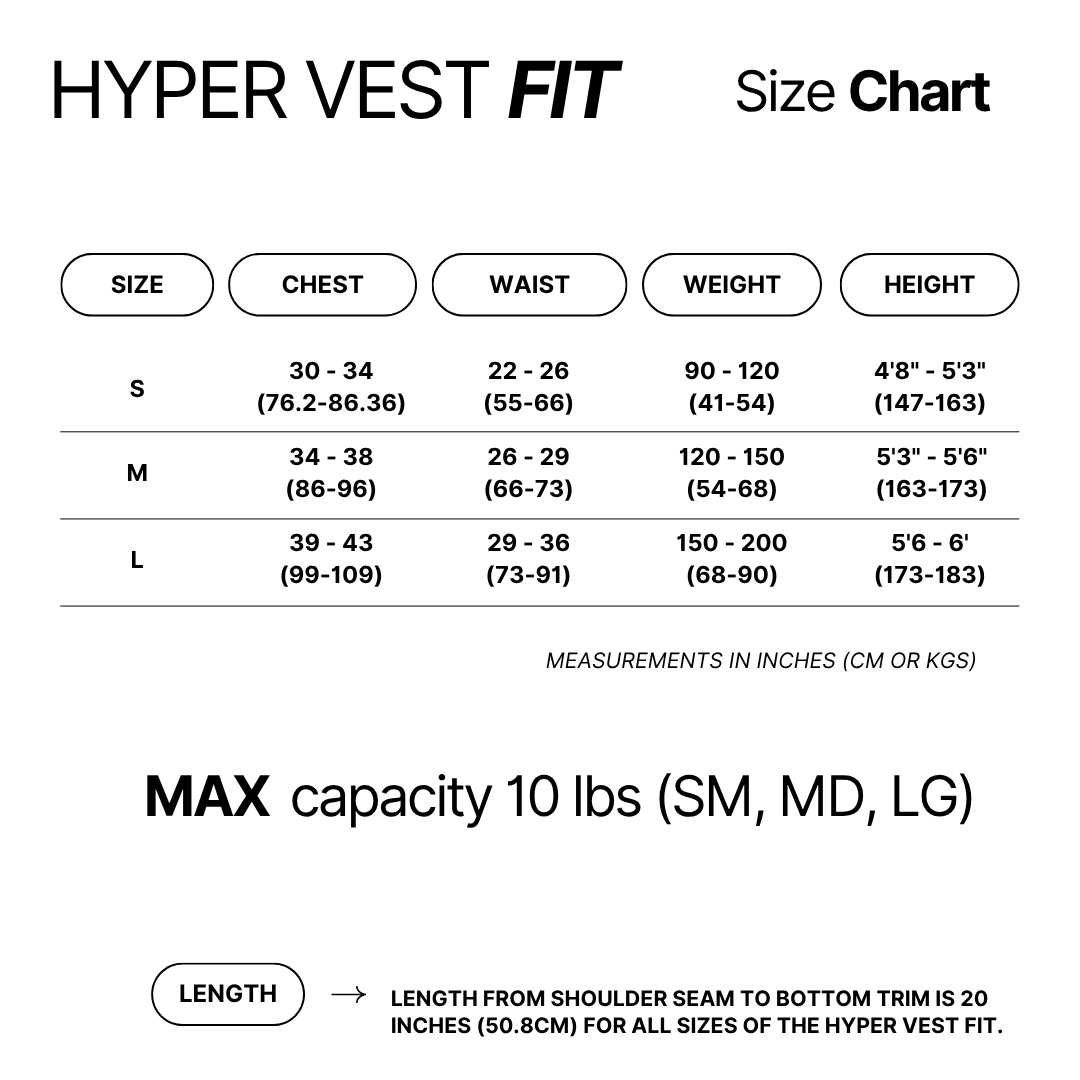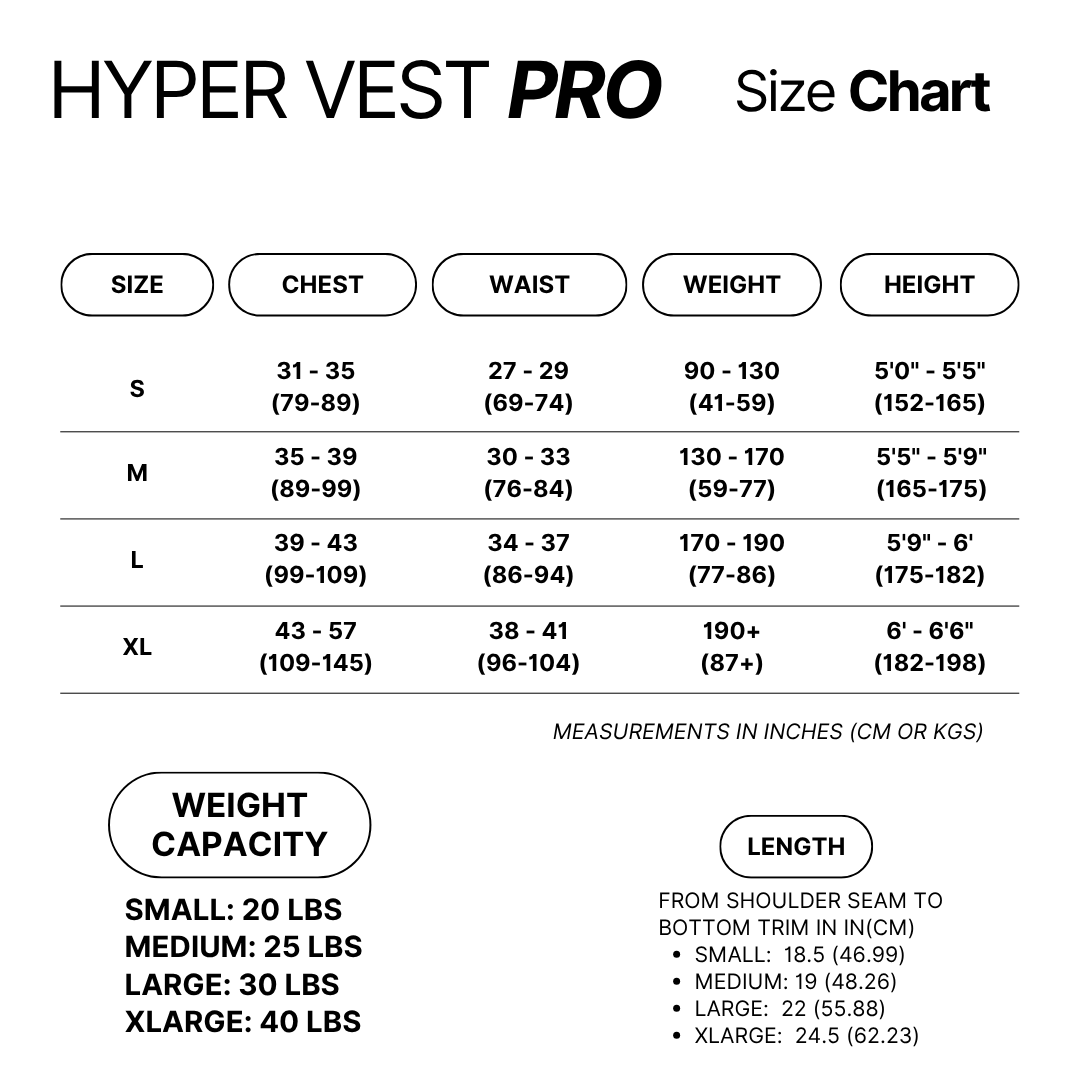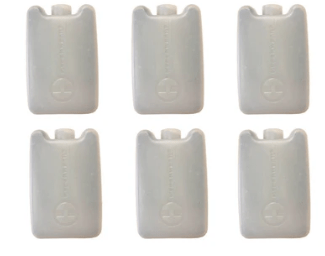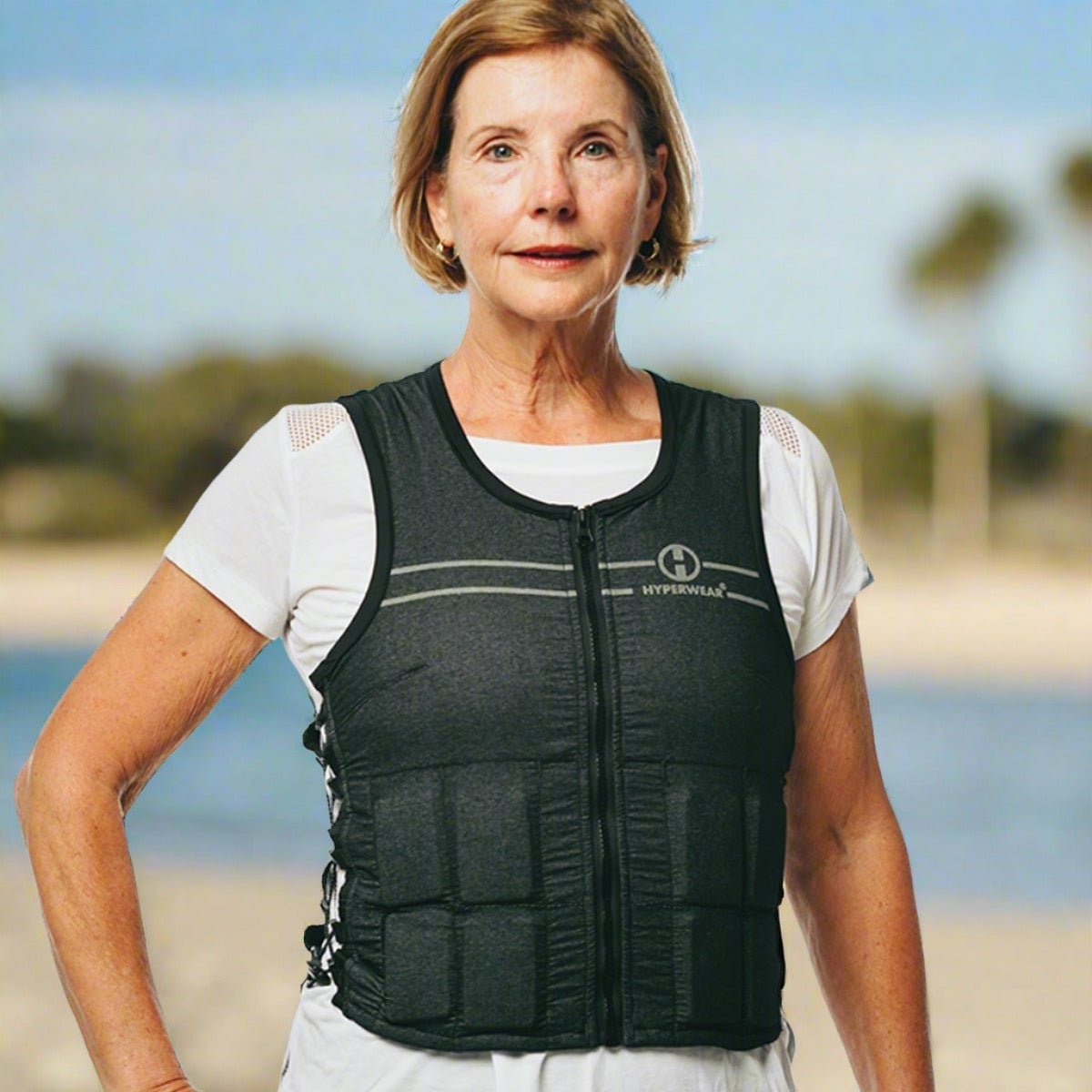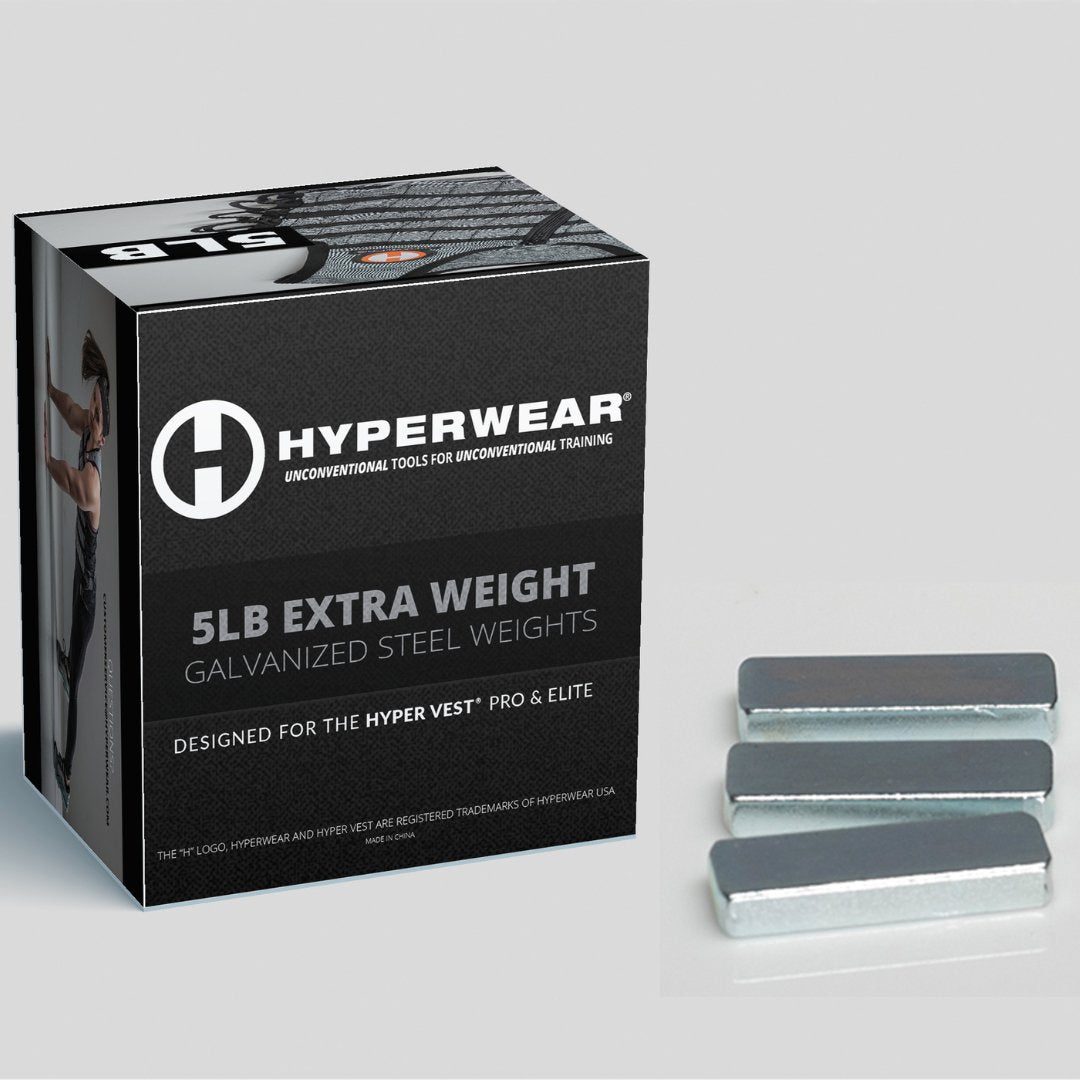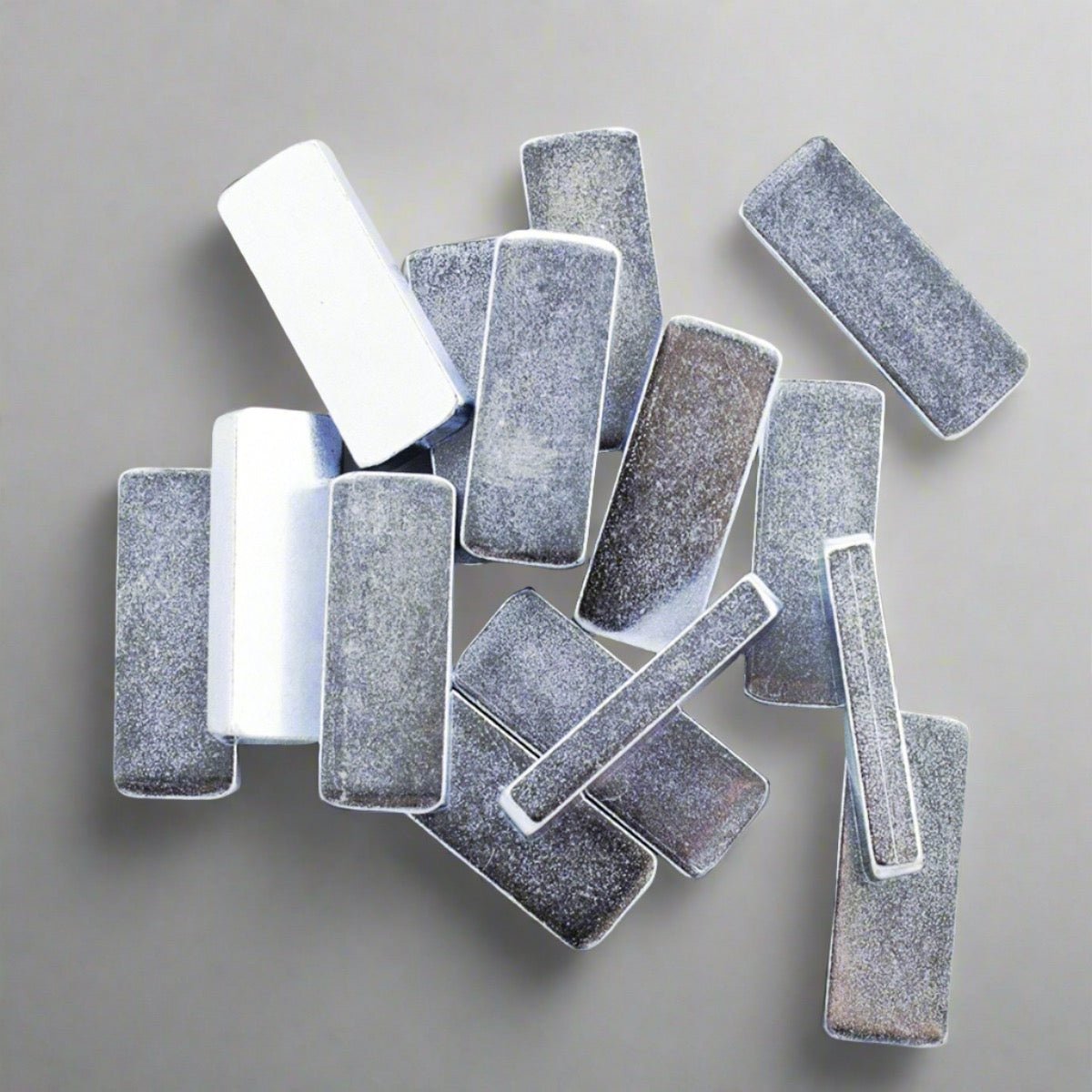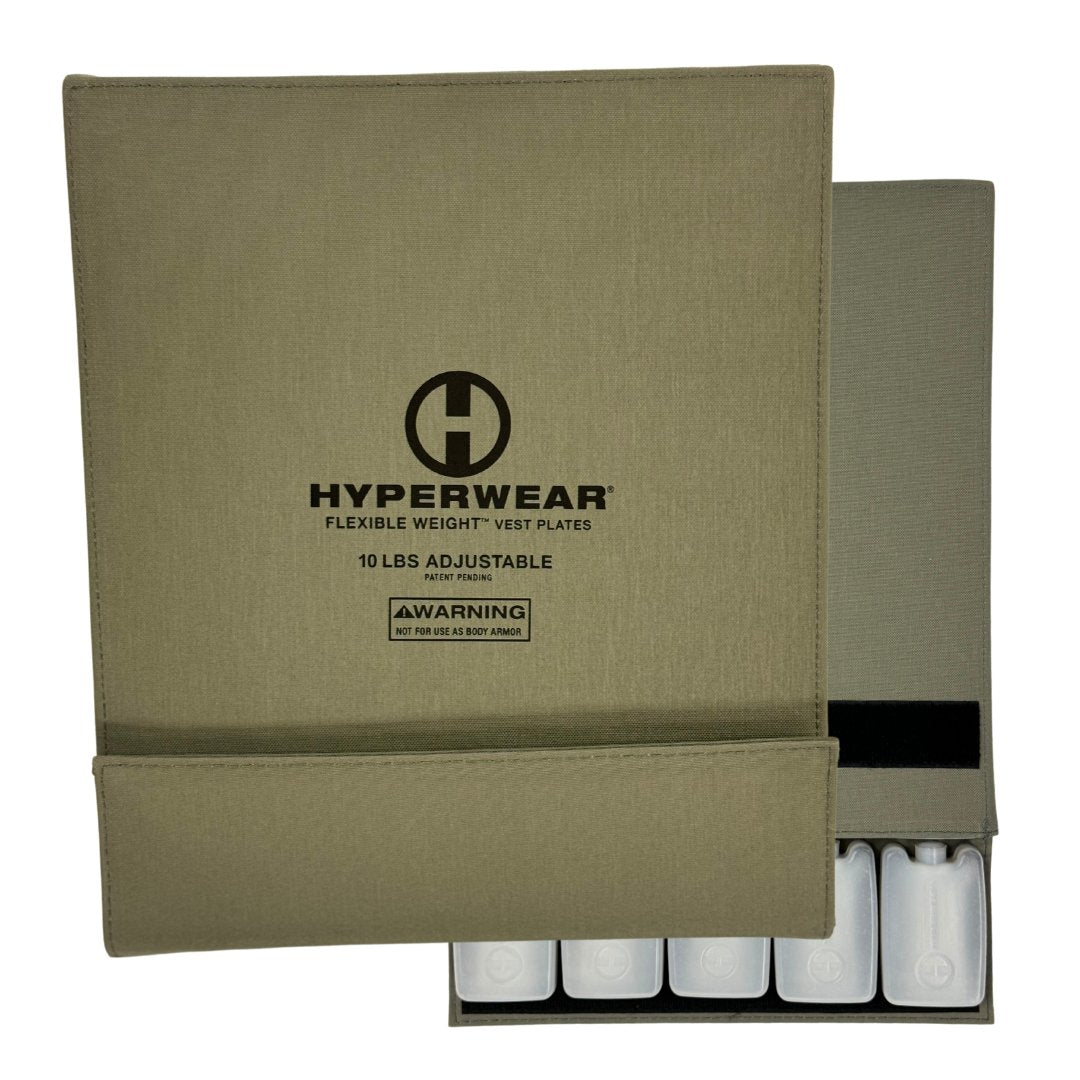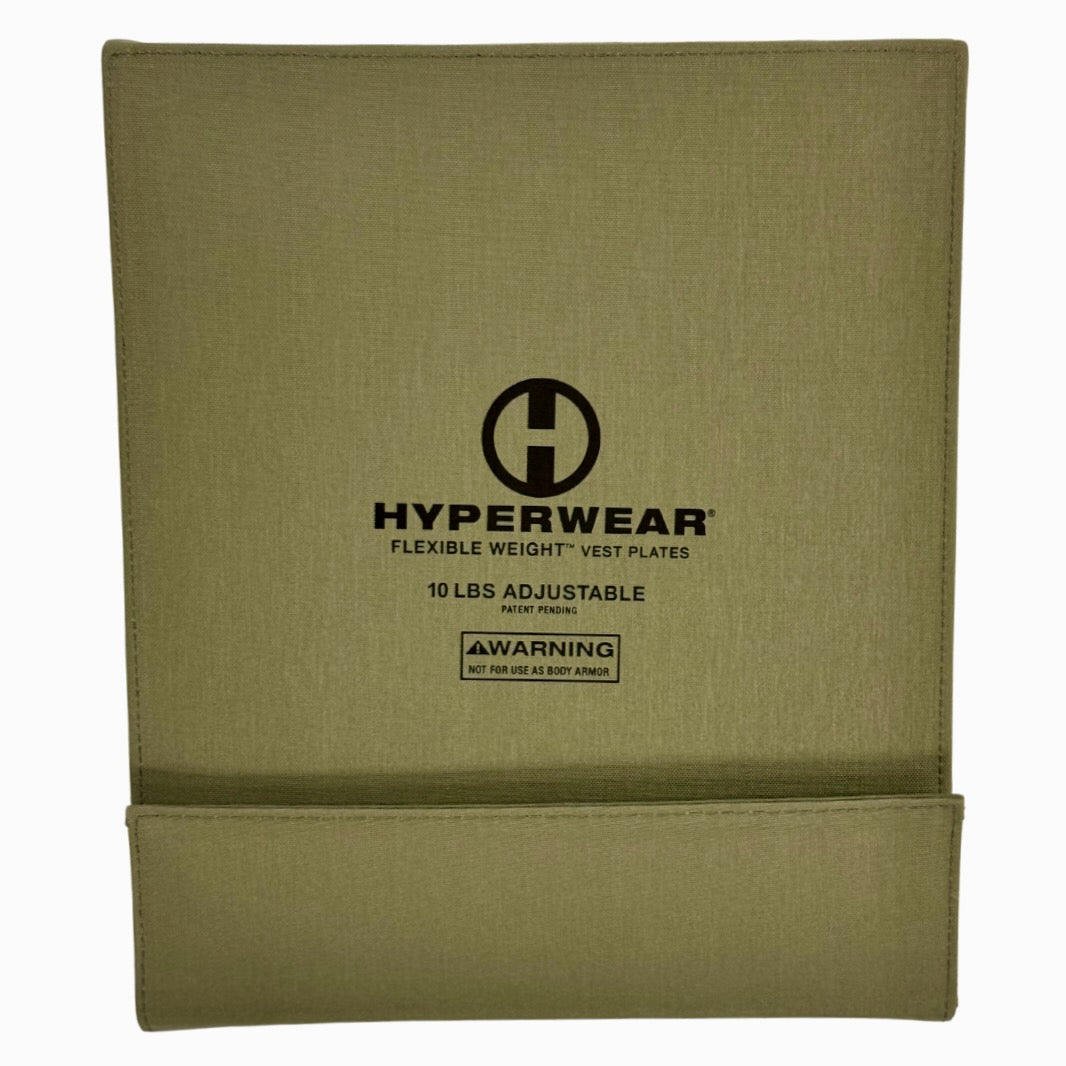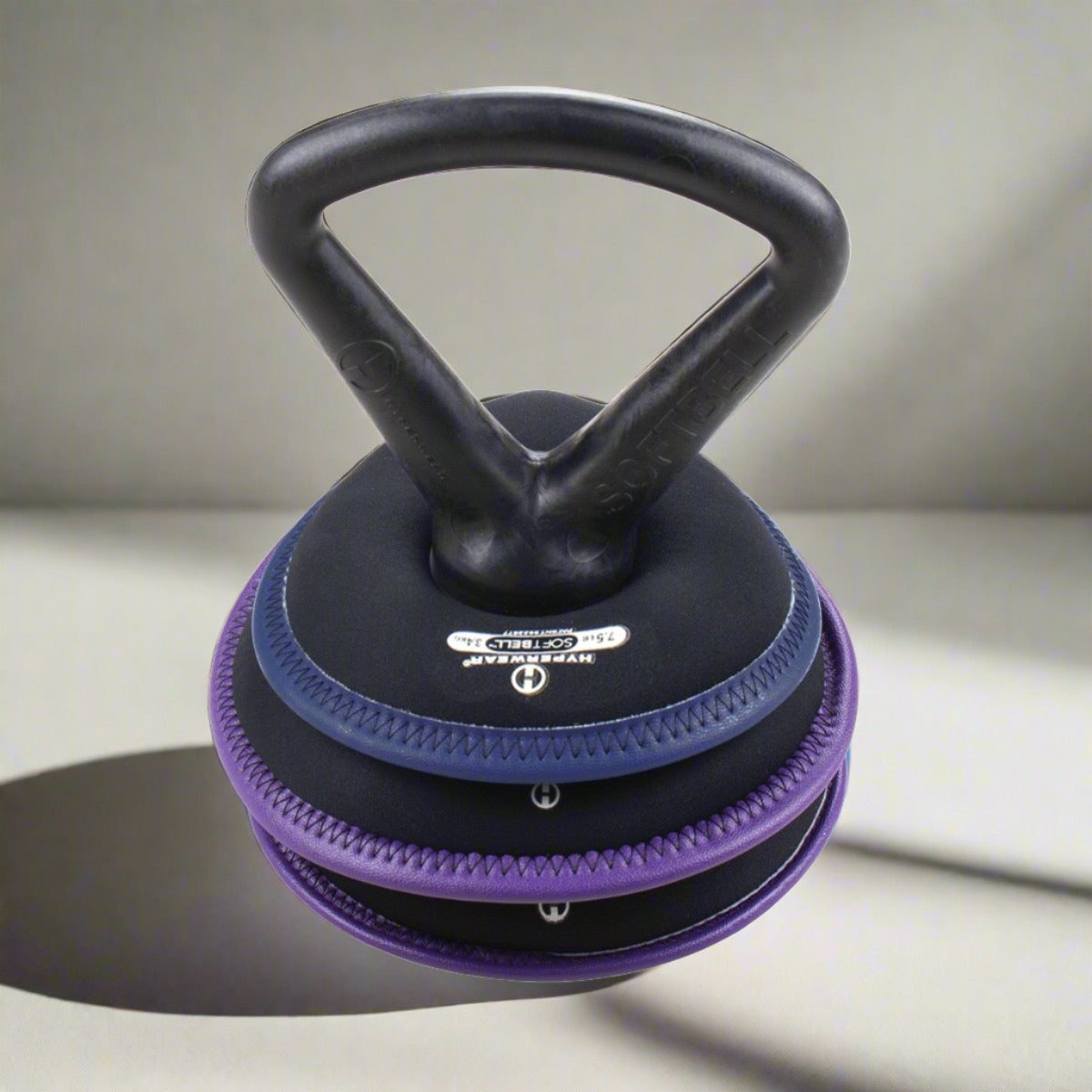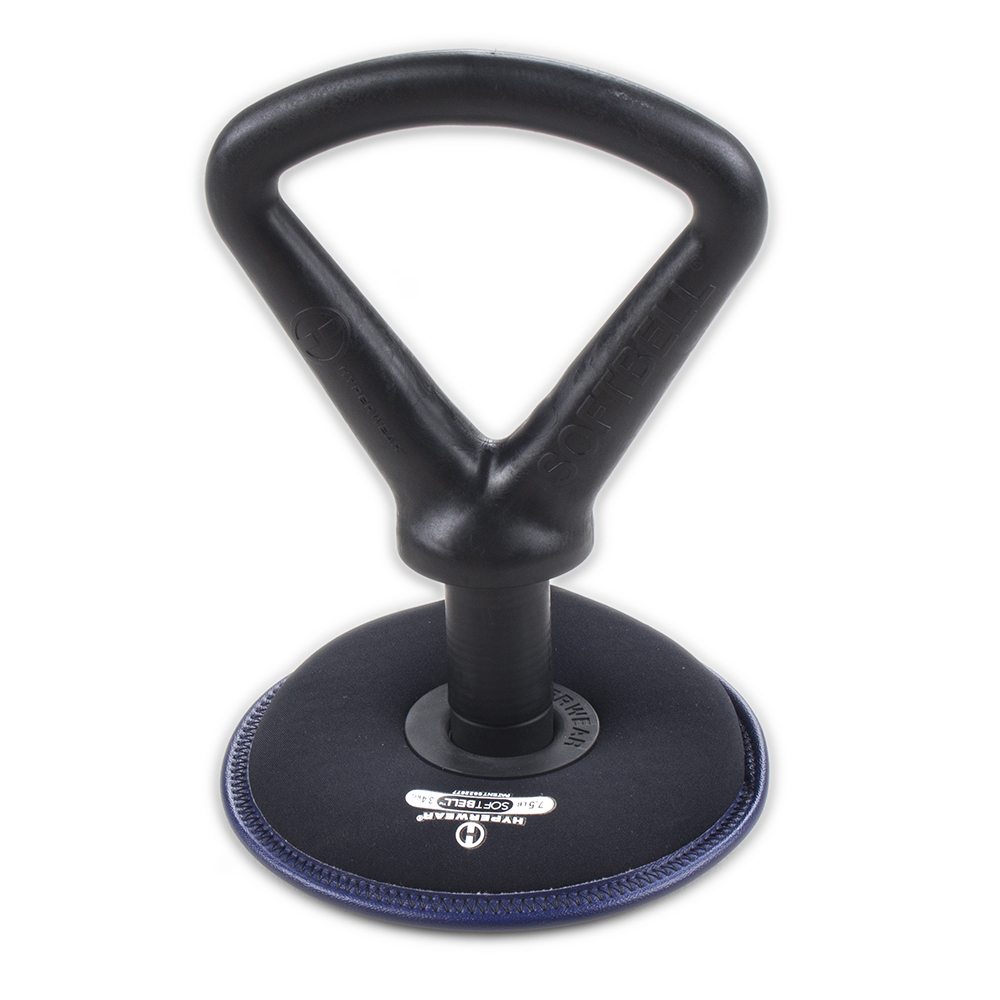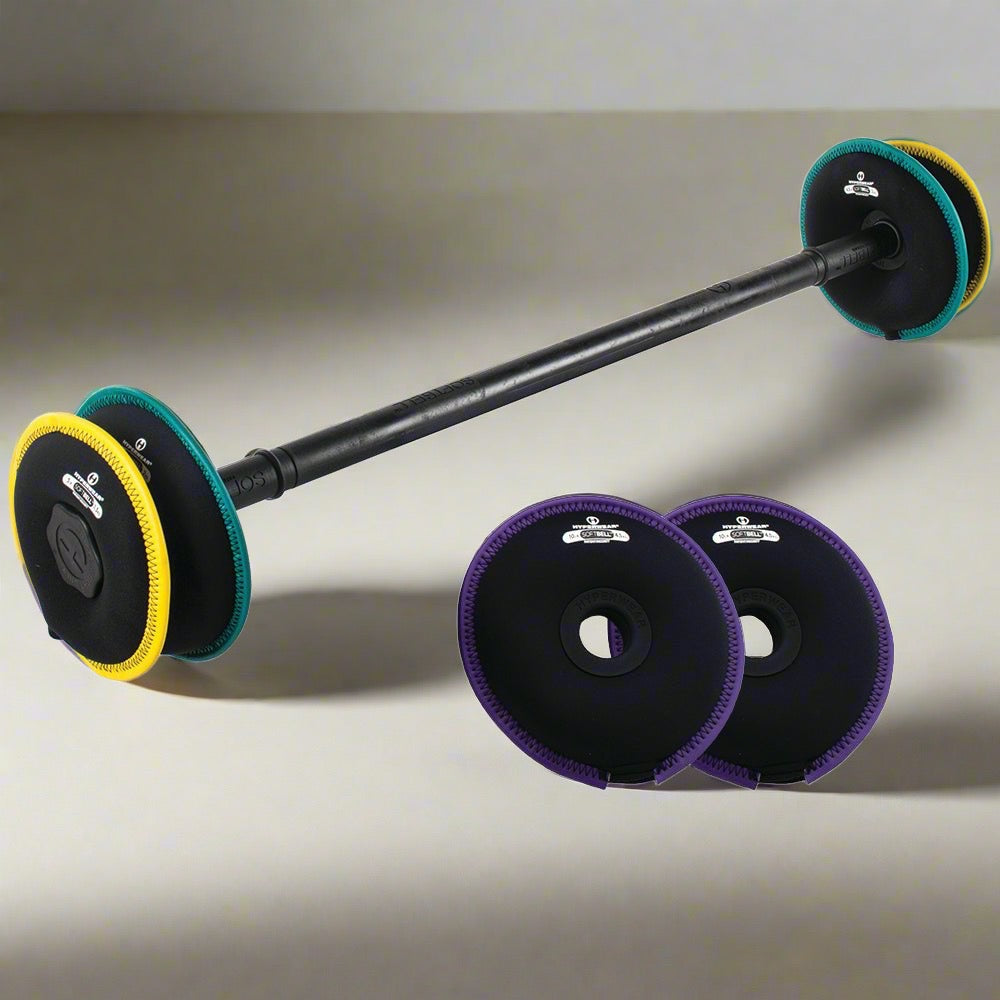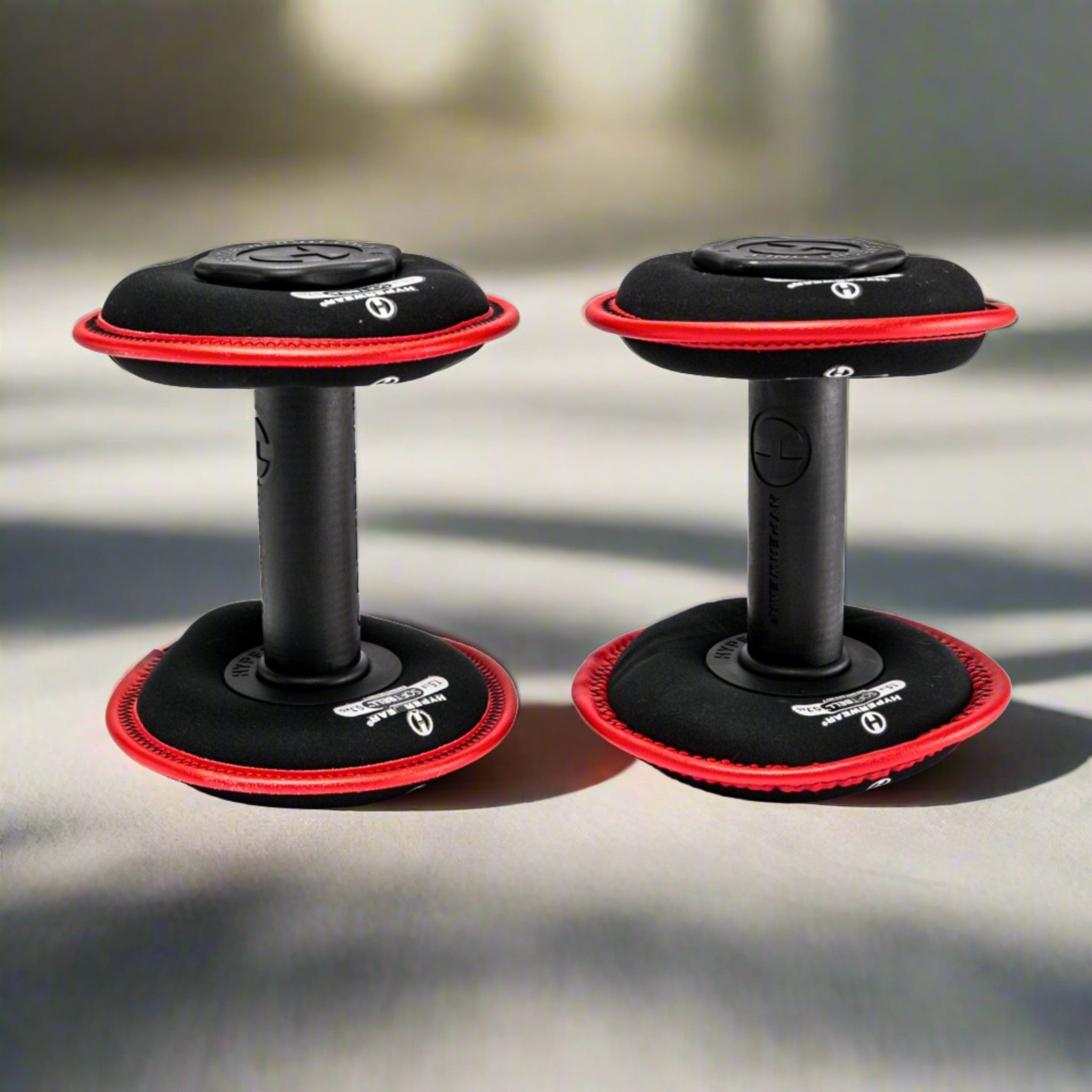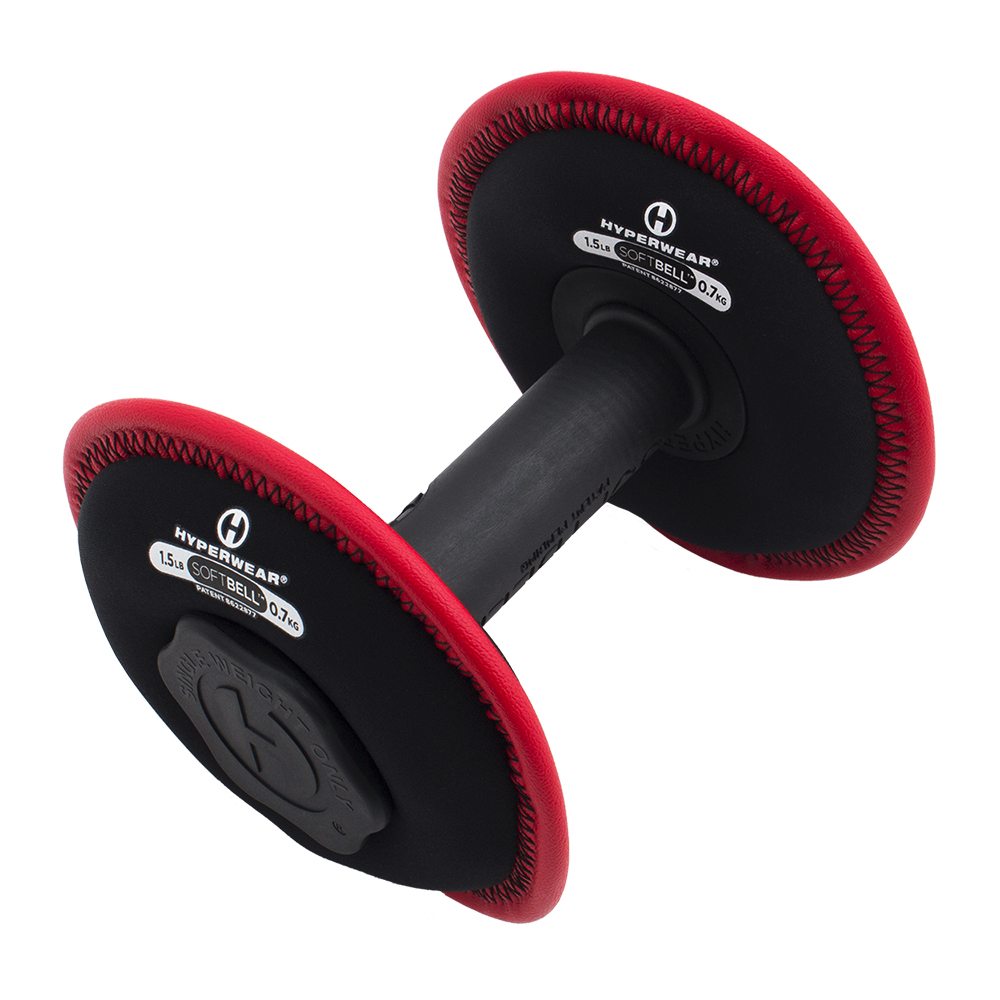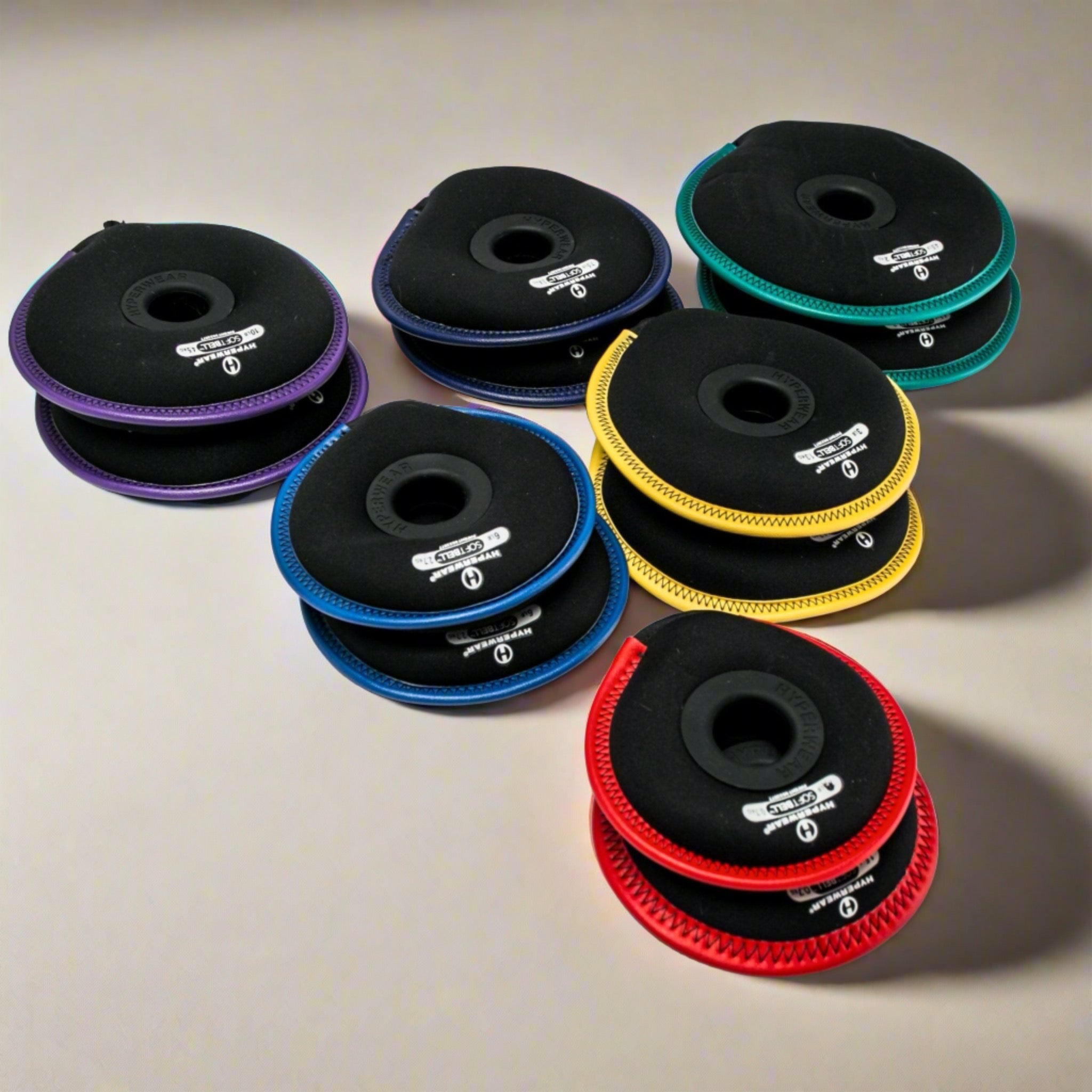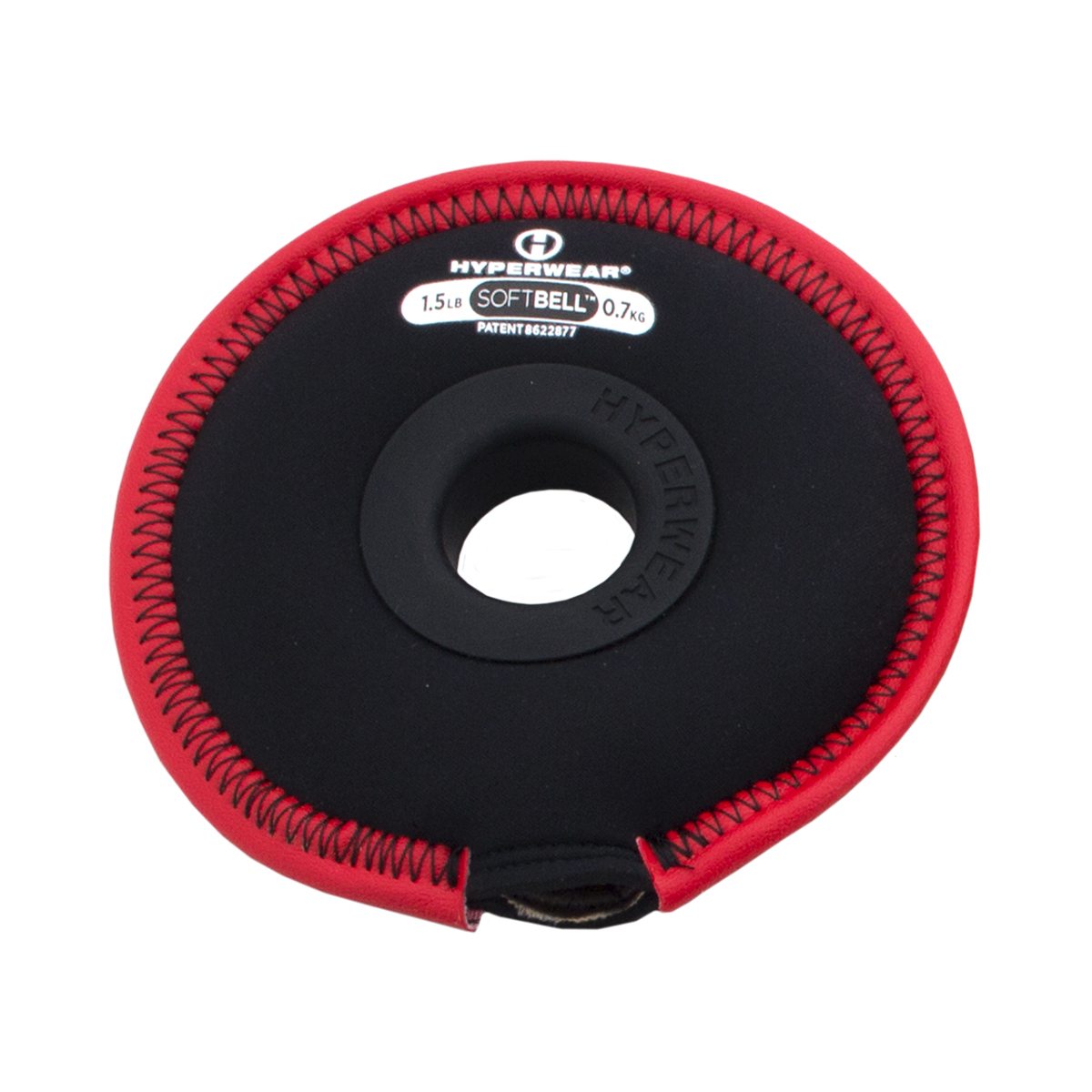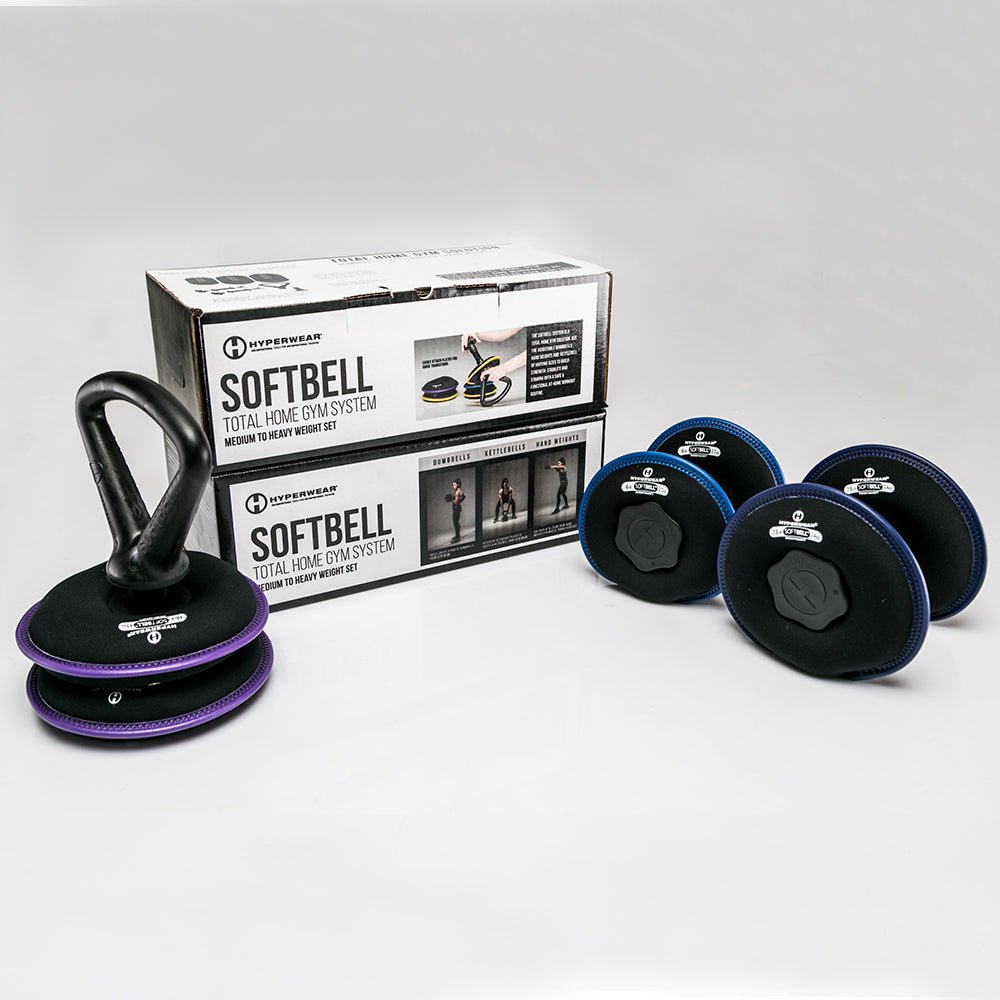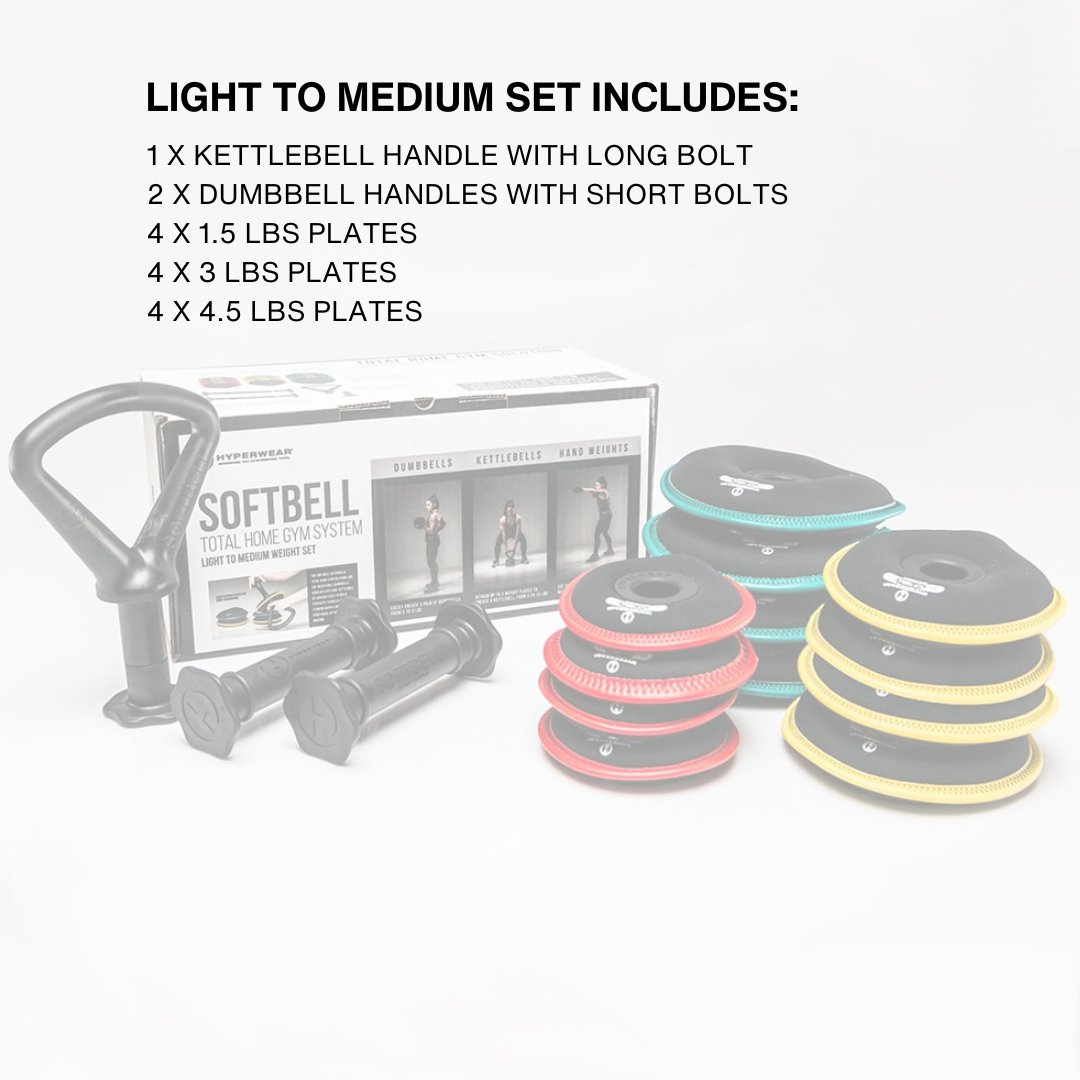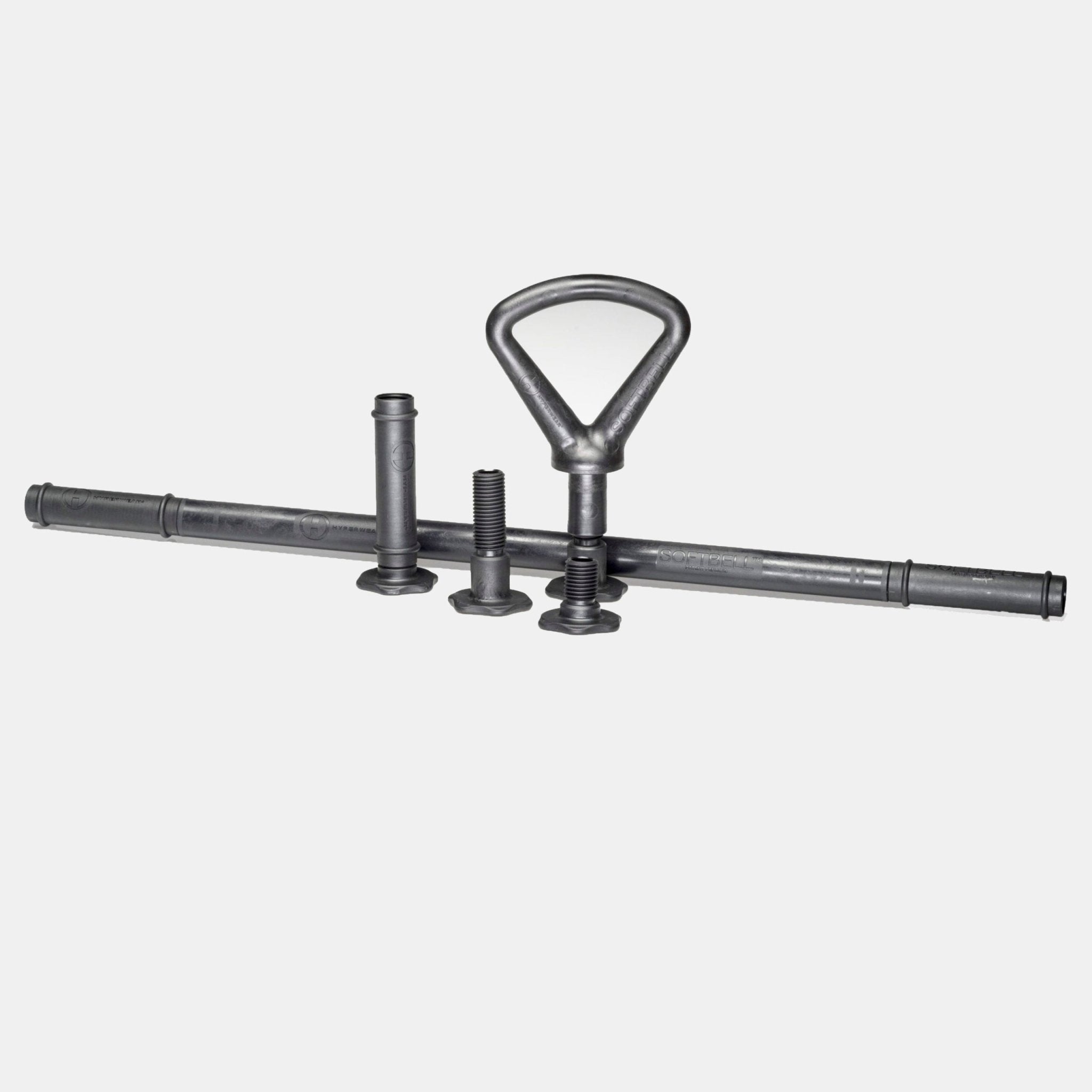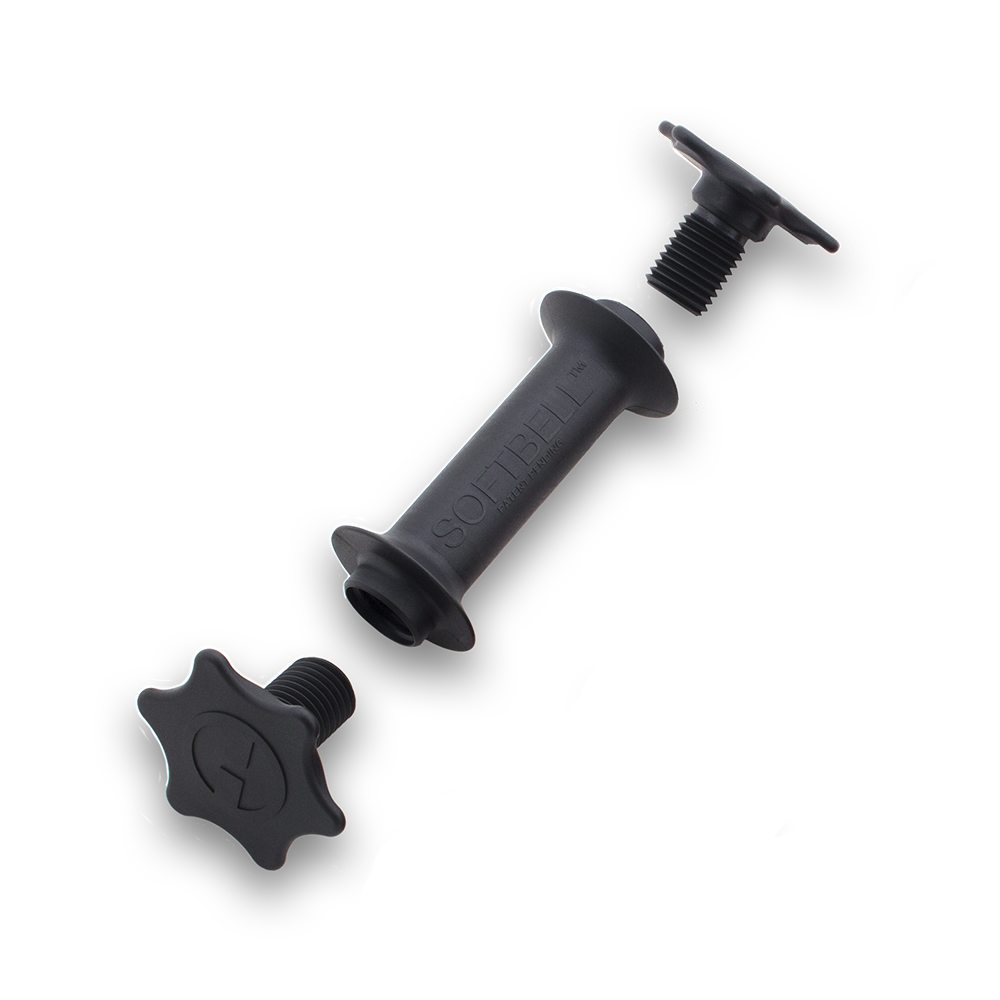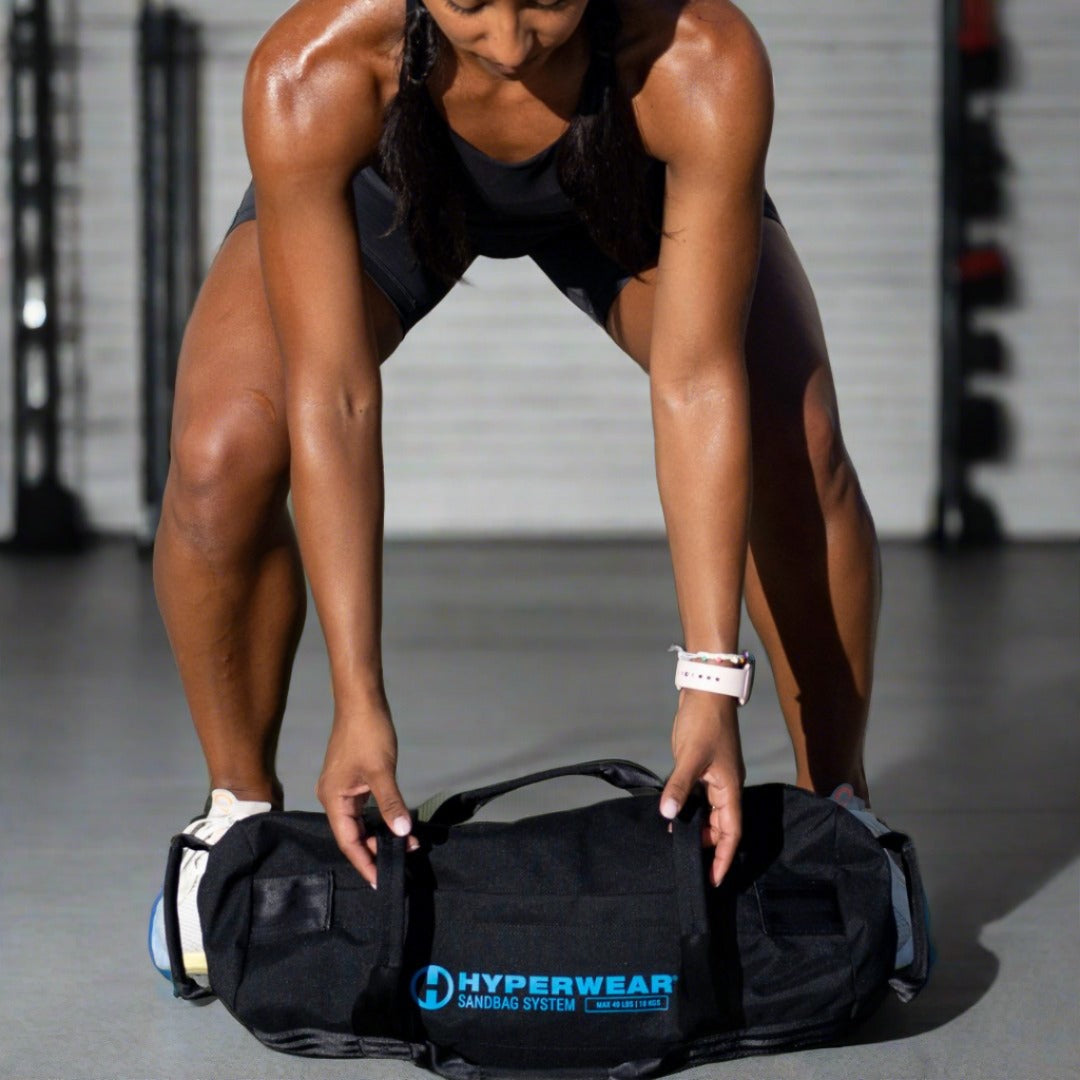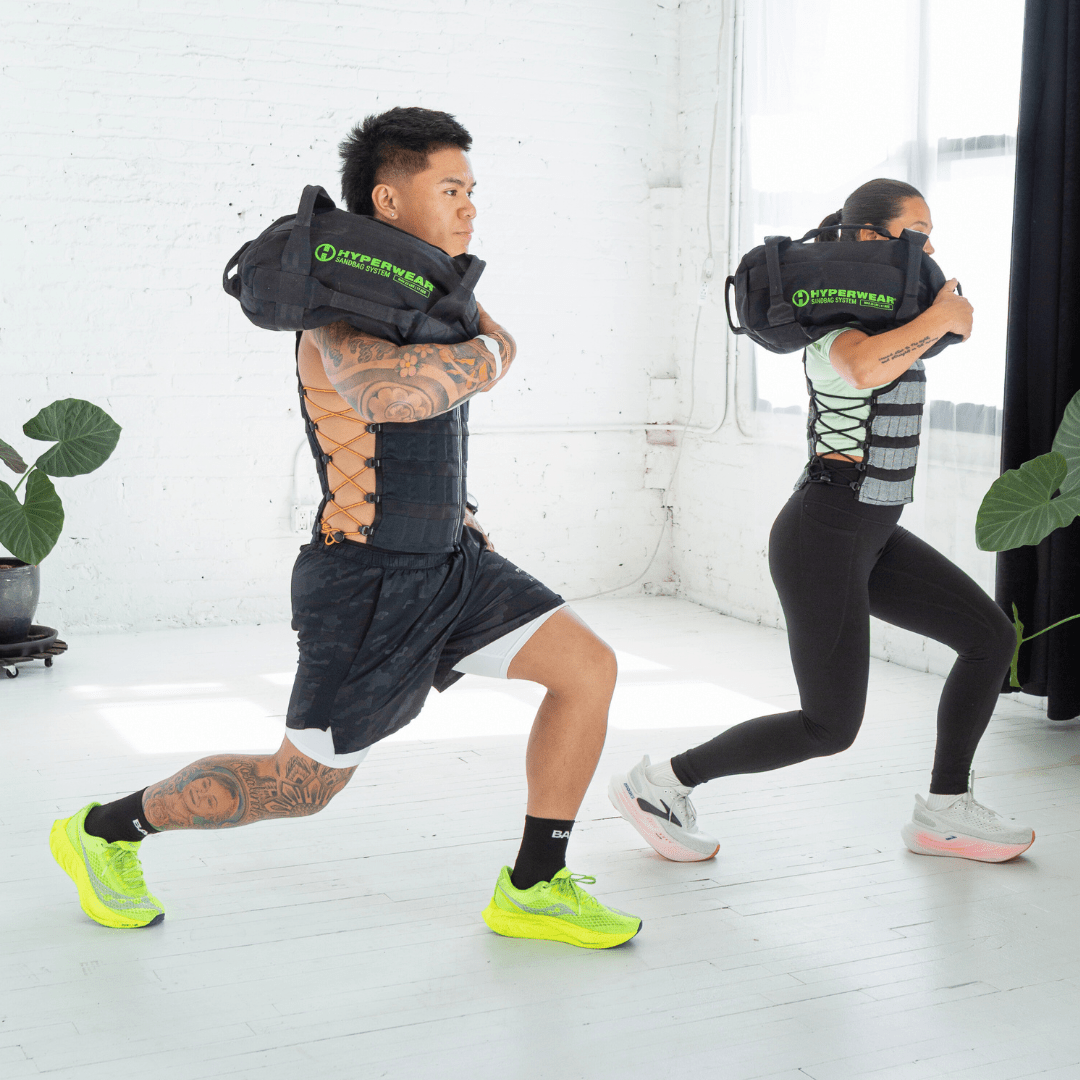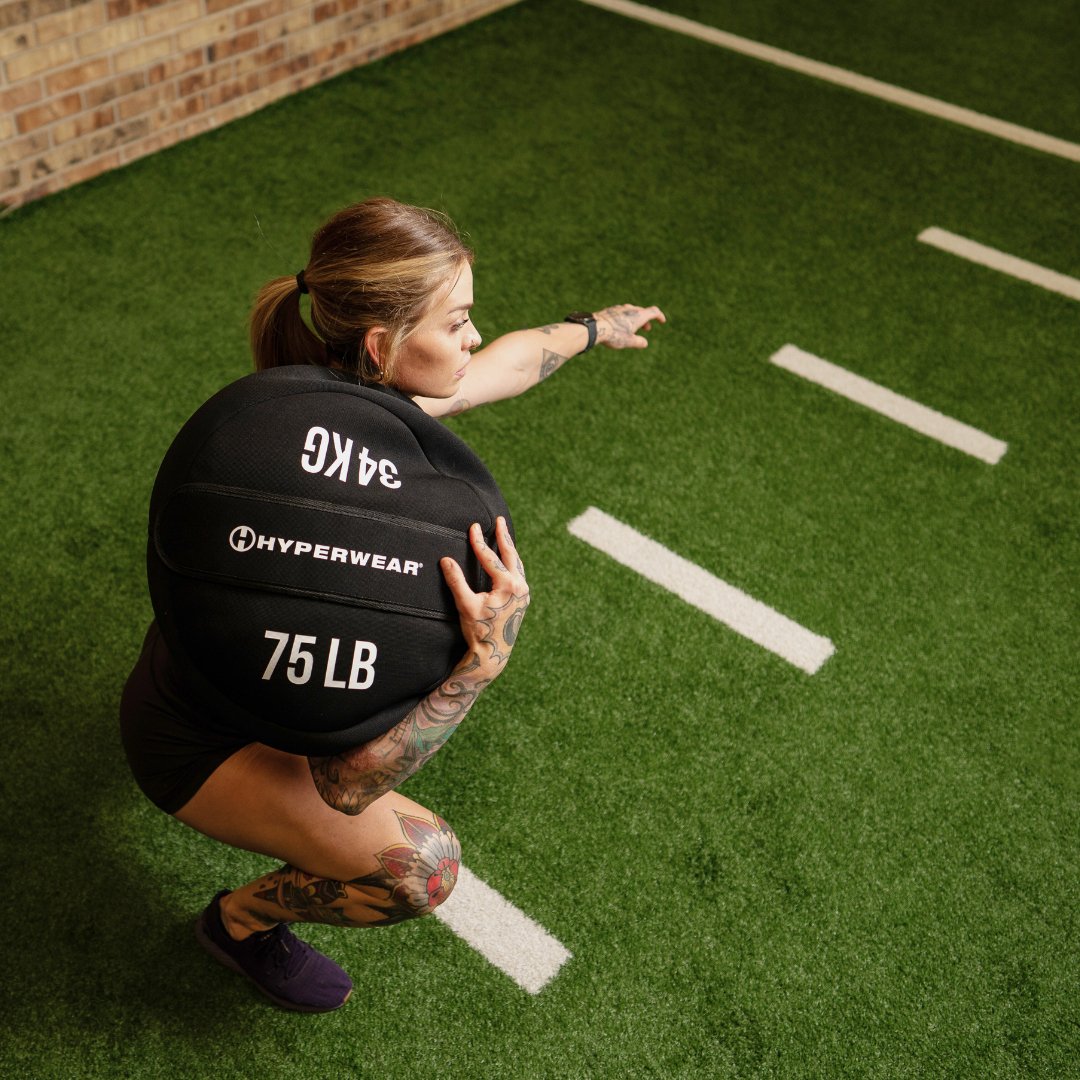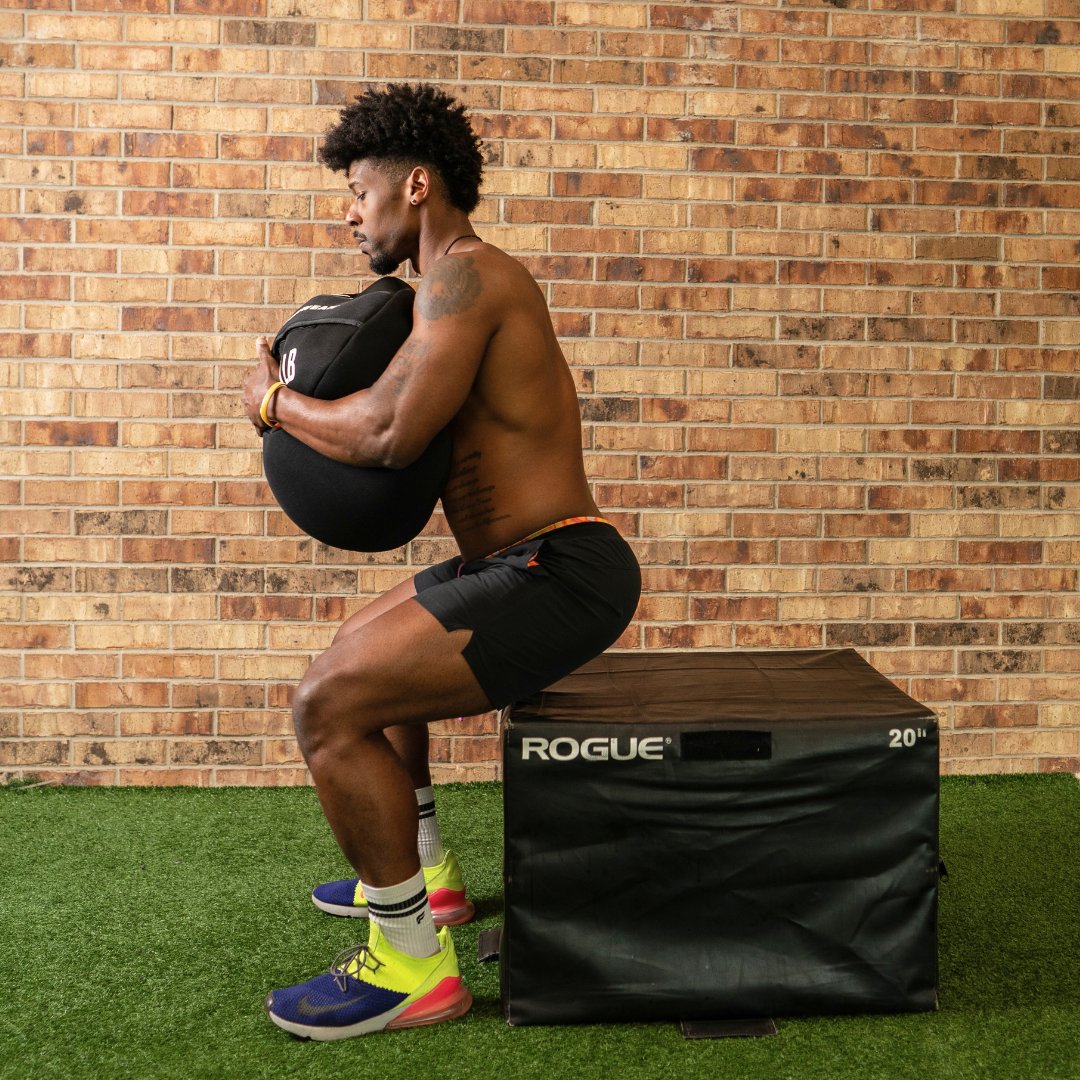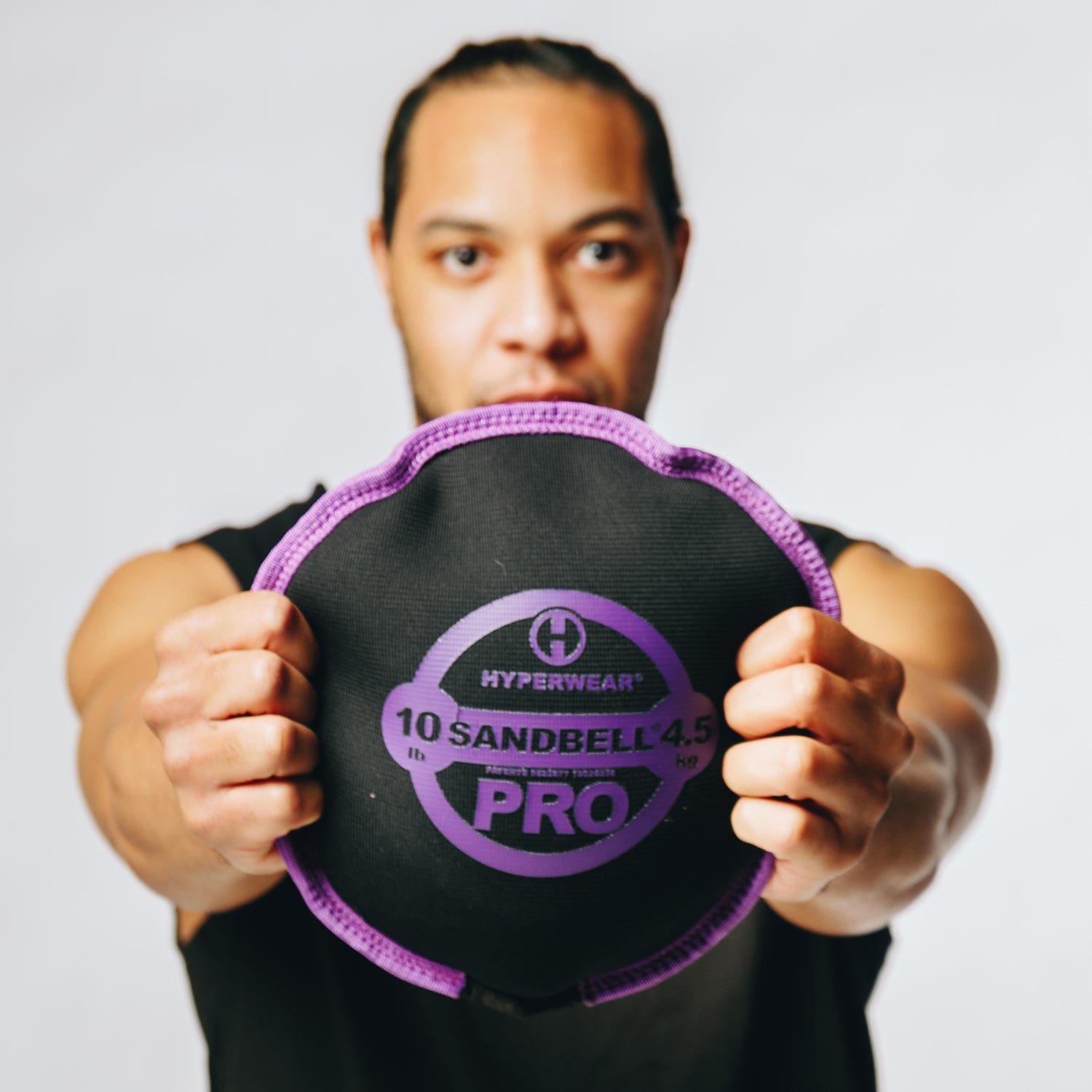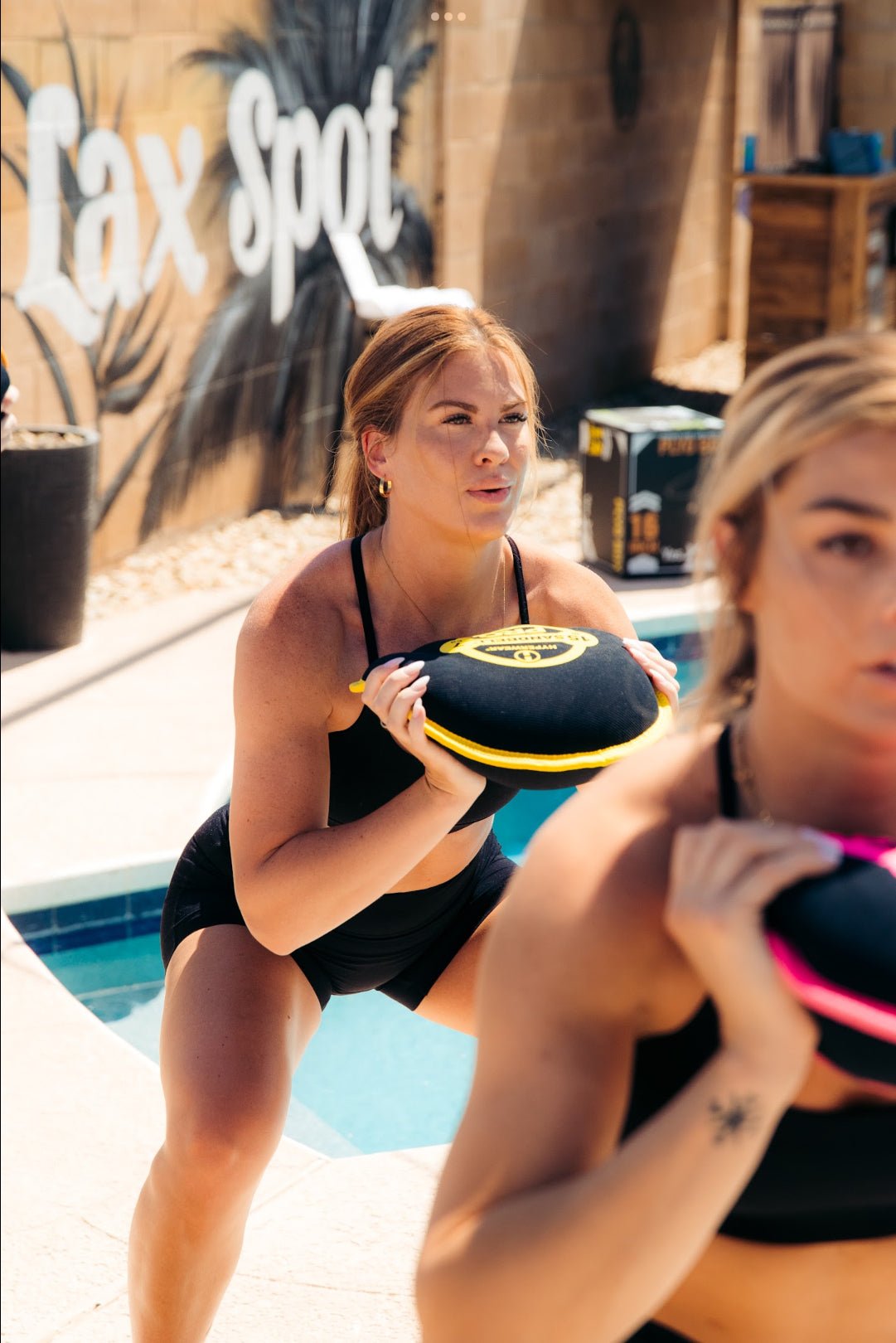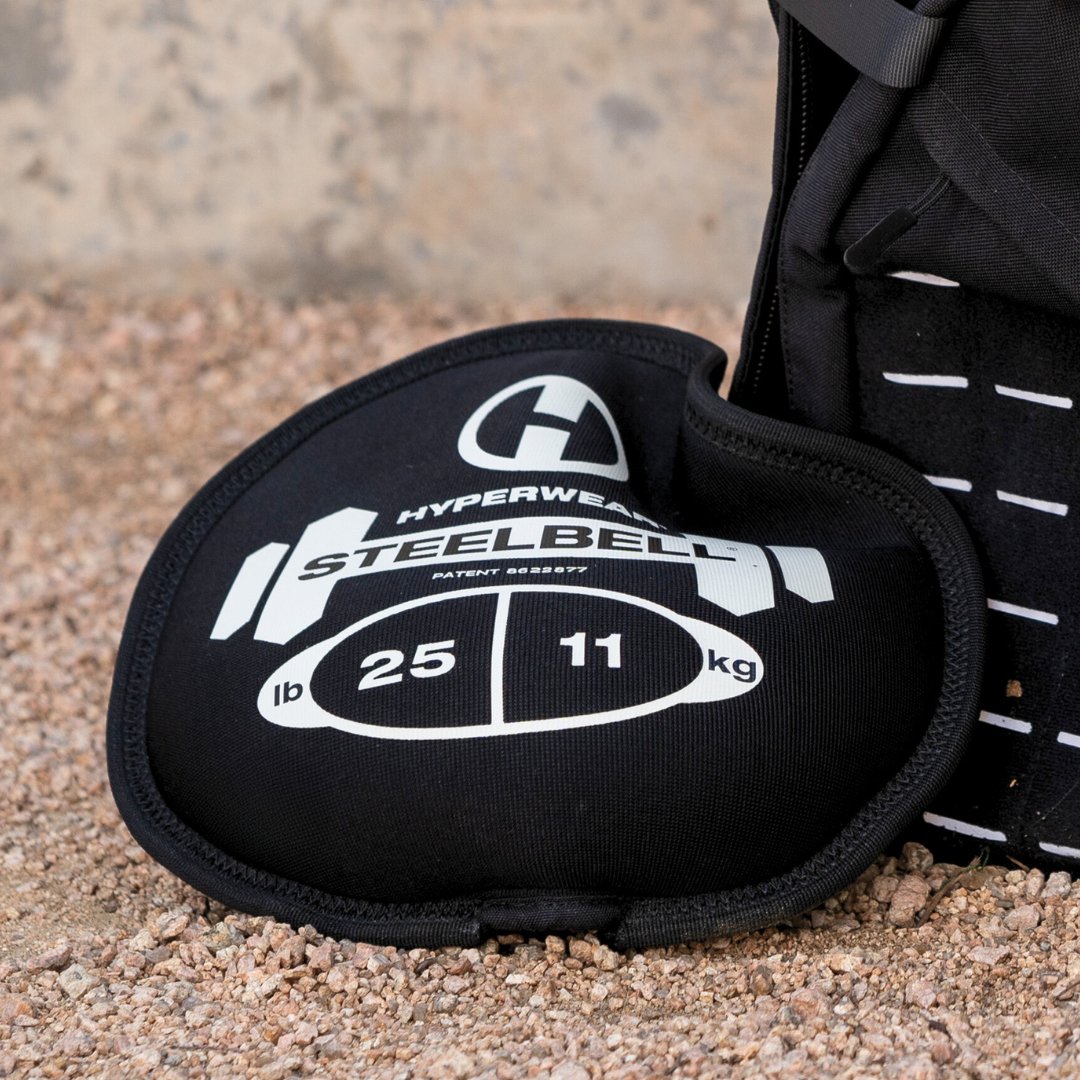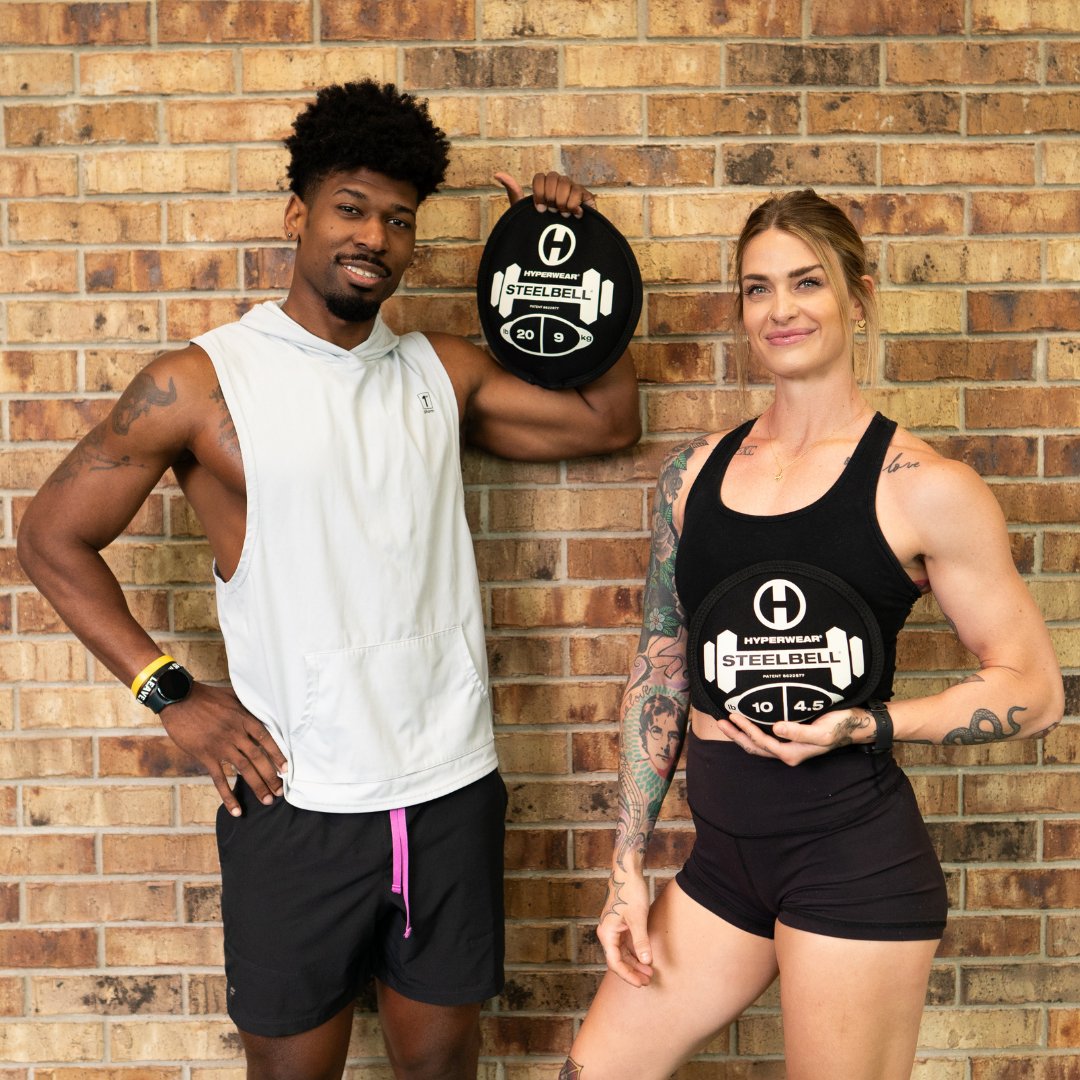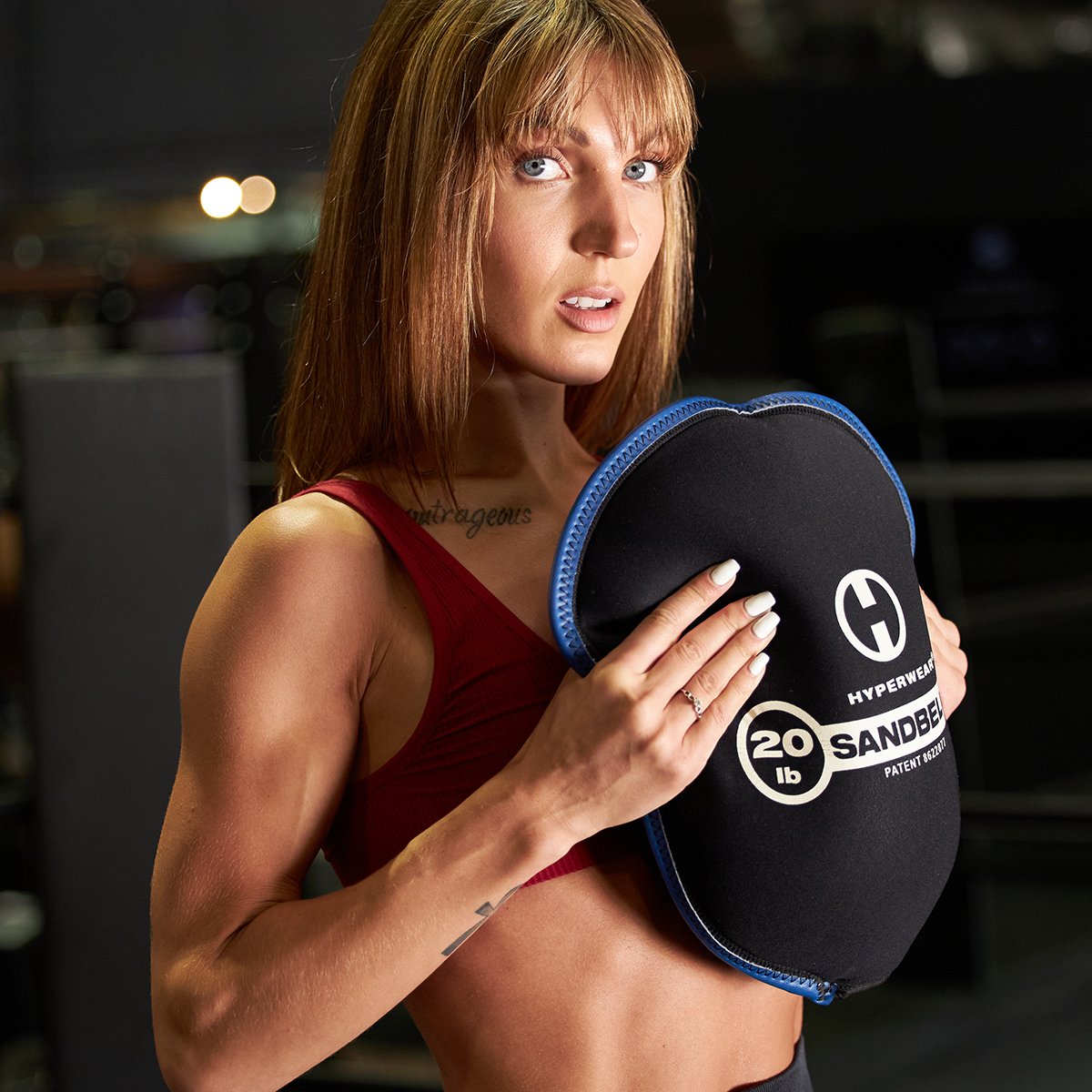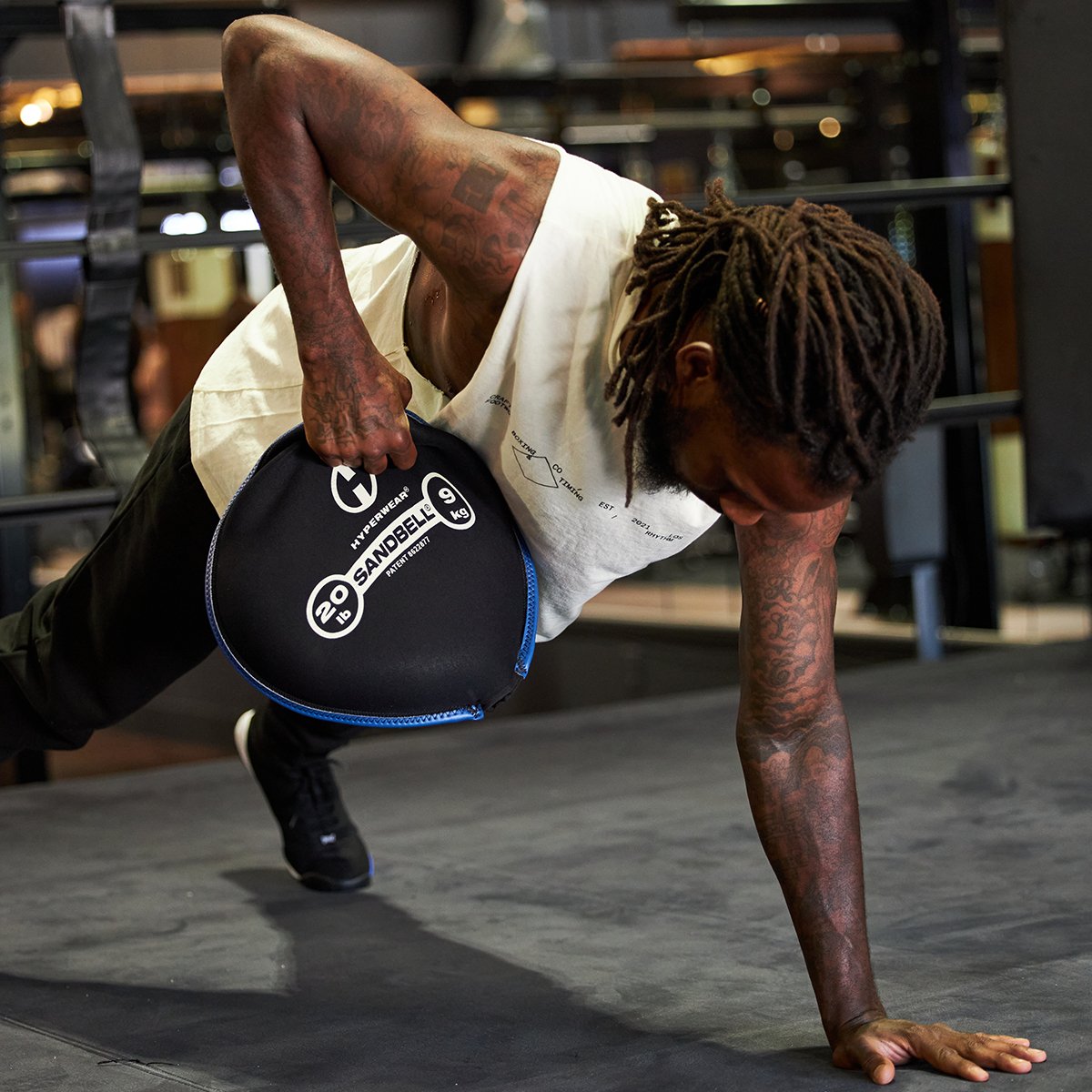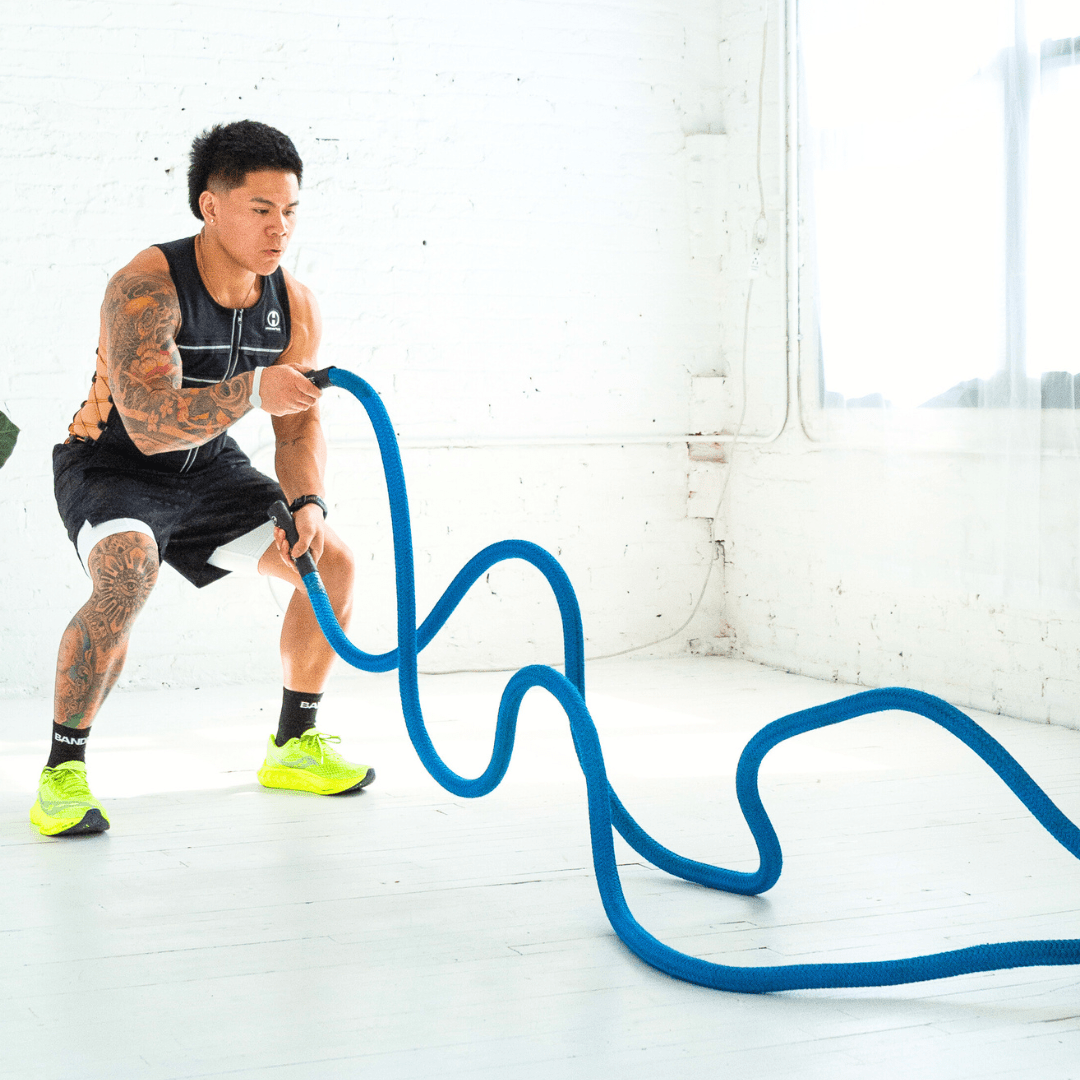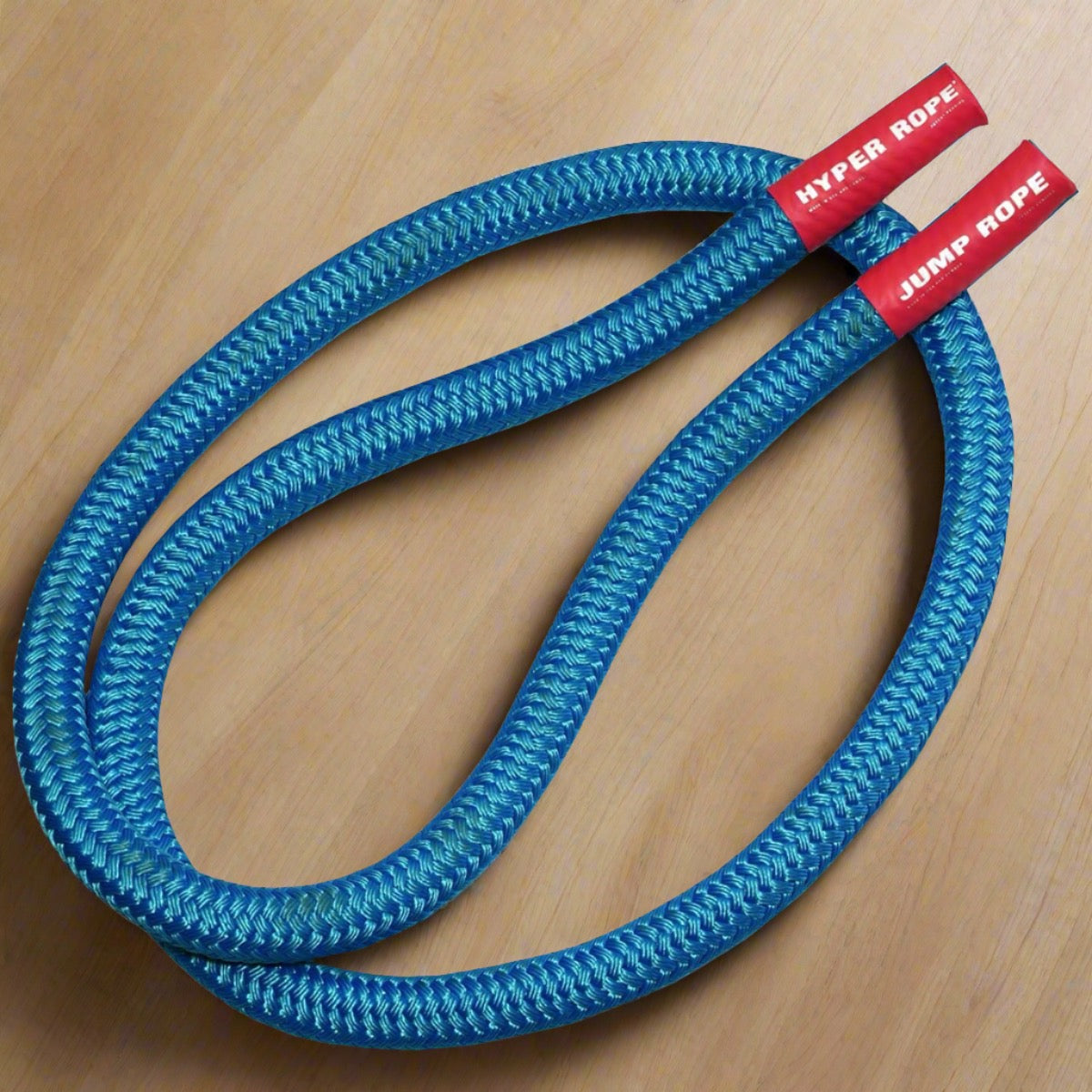SandBell Medicine Ball, Dumbbell and Kettle Bell
By Sam Dowd
Whether you're a health and fitness expert or a gym enthusiast, there will be a time when you want to buy personal training equipment. Training gear can be expensive and certain factors should be considered before making a purchase. Exercise equipment should meet a set of standards before being considered a worthwhile addition to your training gear. Namely, equipment must be cost effective, and maintain durability and versatility throughout its life span. HyperWear's signature piece of fitness equipment, the SandBell®, is the perfect example of their dedication to provide health and fitness consumers and trainers with training gear that embodies the aforementioned qualities. While it’s not practical to name all of the benefits of SandBells in a few paragraphs, comparing SandBells with dumbbells, medicine balls, and kettlebells will give you a better understanding of the functionality of this exciting product. A closer look at the SandBell is warranted to fully appreciate this product in relation to other strength training modalities. When HyperWear first began construction on the SandBell, they wanted to create a product durable enough to withstand serious use and abuse. The end result was the toughest piece of strength training equipment you will ever use! Constructed from a heavy-duty neoprene outside and leak-resistant stitching, the SandBell can be dropped, thrown, tossed or slammed without damage to the SandBell, the user, or other equipment. As the SandBell’s durability is unmatched, so too is its cost-effectiveness. Most free weights, medicine balls, and kettlebells are very expensive per pound and limited in both function and versatility. Pound-for-pound, the SandBell is the most cost effective tool for boosting your resistance-training regimen. For example, a 10 lb. medicine ball costs $89, a filled 10 lb. SandBell is $21.99, and a 10 lb. kettlebell ranges from $25-$60+. The SandBell can be used in all the same ways a medicine ball, plus it can be slammed or thrown against almost any surface. The SandBell can replace the kettlebell, dumbbell or stability ball for most exercises, giving you multiple products in one.
Let's compare the SandBell to the dumbbell. Most gym goers are fairly comfortable with the dumbbell, but in many training contexts, investing your time and energy into a SandBell workout is more beneficial. While dumbells offer a static resistance (fixed weight attached on either end of a handle), the SandBell gives users a dynamic resistance in the form of shifting sand. This dynamic resistance allows for greater muscle fiber recruitment in the abdominal and grip muscles regardless of the movement pattern being performed.
As shown below, the SandBell can be used in place of a dumbbell for exercises like the bent-over row. In addition to working targeted arm, shoulder and back muscles, the SandBell also challenges grip and abdominal muscles. This is because the sand inside the SandBell is dynamic, requiring the user to grip into the bell while activating their core to stabilize the shifting weight. Additionally, the SandBell can be dropped, thrown or tossed—free weights can injure workout participants or damage equipment if used incorrectly or dropped.
As the SandBell’s durability is unmatched, so too is its cost-effectiveness. Most free weights, medicine balls, and kettlebells are very expensive per pound and limited in both function and versatility. Pound-for-pound, the SandBell is the most cost effective tool for boosting your resistance-training regimen. For example, a 10 lb. medicine ball costs $89, a filled 10 lb. SandBell is $21.99, and a 10 lb. kettlebell ranges from $25-$60+. The SandBell can be used in all the same ways a medicine ball, plus it can be slammed or thrown against almost any surface. The SandBell can replace the kettlebell, dumbbell or stability ball for most exercises, giving you multiple products in one.
Let's compare the SandBell to the dumbbell. Most gym goers are fairly comfortable with the dumbbell, but in many training contexts, investing your time and energy into a SandBell workout is more beneficial. While dumbells offer a static resistance (fixed weight attached on either end of a handle), the SandBell gives users a dynamic resistance in the form of shifting sand. This dynamic resistance allows for greater muscle fiber recruitment in the abdominal and grip muscles regardless of the movement pattern being performed.
As shown below, the SandBell can be used in place of a dumbbell for exercises like the bent-over row. In addition to working targeted arm, shoulder and back muscles, the SandBell also challenges grip and abdominal muscles. This is because the sand inside the SandBell is dynamic, requiring the user to grip into the bell while activating their core to stabilize the shifting weight. Additionally, the SandBell can be dropped, thrown or tossed—free weights can injure workout participants or damage equipment if used incorrectly or dropped.
 Now let's compare SandBells to medicine balls. Many fitness enthusiasts marvel at the functionality of the medicine ball. But, what can it do that a SandBell can't do better? Medicine balls build explosive hip and abdominal strength and work well for many rotational movement patterns. Training with a SandBell provides better results during same exercises and at a lower cost. As with dumbbells, medicine balls do not provide your core or grip muscles the dynamic resistance found in a SandBell. Ultimately medicine balls simply cannot compare with the functionality of a SandBell!
The picture below shows a SandBell Slam. SandBell Slams are more challenging than med ball slams because the user has to squat down and pick up the SandBell since, unlike a med ball, the SandBell doesn't bounce. SandBell Slams are one of the best training exercises for developing explosive power and activating almost every muscle group in the body. Because SandBells were made to withstand extreme force, you don't have to worry about it bursting or leaking sand (slamming is covered in the user warranty).
Finally, a kettlebell training regimen would benefit by substituting a SandBell’s in the workout. Using a SandBell in any Olympic-style lift typically performed with a kettlebell challenges the muscles in the midsection and grip in a way that kettlebells can't. Try adding SandBell swings or snatches to your training regimen to build more power through your hips and midsection. Swapping a kettlebell for a SandBell is a great option when working with kids or older adults where injury or safety is a concern.
The image below shows a one-arm snatch using the SandBell. In this exercise, the user starts with the SandBell on the floor and in one fluid motion pulls the SandBell from the floor up into the air and ends with the arm extended overhead. It's important to keep the arm close to the body when doing this exercise. The SandBell Snatch is a great way to train for many Olympic lift exercises, as well as the hamstrings, calves, grip, forearm, shoulders and core.
The exercises mentioned above are only a brief glimpse into SandBell training. The Hyper Training Lab articles and videos present new and innovative ways to use this exciting strength training product. Hyperwear also offers Level 1 SandBell Training Workshops for personal trainers, coaches and instructors that are held throughout the US. These interactive workshops teach the science and philosophy behind SandBell training, and how to implement the SandBell into personal, small group and boot camp settings. So give the SandBell a try and see how much you can intensify your workouts and continually challenge your muscles with this one functional, versatile and dynamic fitness product.
Now let's compare SandBells to medicine balls. Many fitness enthusiasts marvel at the functionality of the medicine ball. But, what can it do that a SandBell can't do better? Medicine balls build explosive hip and abdominal strength and work well for many rotational movement patterns. Training with a SandBell provides better results during same exercises and at a lower cost. As with dumbbells, medicine balls do not provide your core or grip muscles the dynamic resistance found in a SandBell. Ultimately medicine balls simply cannot compare with the functionality of a SandBell!
The picture below shows a SandBell Slam. SandBell Slams are more challenging than med ball slams because the user has to squat down and pick up the SandBell since, unlike a med ball, the SandBell doesn't bounce. SandBell Slams are one of the best training exercises for developing explosive power and activating almost every muscle group in the body. Because SandBells were made to withstand extreme force, you don't have to worry about it bursting or leaking sand (slamming is covered in the user warranty).
Finally, a kettlebell training regimen would benefit by substituting a SandBell’s in the workout. Using a SandBell in any Olympic-style lift typically performed with a kettlebell challenges the muscles in the midsection and grip in a way that kettlebells can't. Try adding SandBell swings or snatches to your training regimen to build more power through your hips and midsection. Swapping a kettlebell for a SandBell is a great option when working with kids or older adults where injury or safety is a concern.
The image below shows a one-arm snatch using the SandBell. In this exercise, the user starts with the SandBell on the floor and in one fluid motion pulls the SandBell from the floor up into the air and ends with the arm extended overhead. It's important to keep the arm close to the body when doing this exercise. The SandBell Snatch is a great way to train for many Olympic lift exercises, as well as the hamstrings, calves, grip, forearm, shoulders and core.
The exercises mentioned above are only a brief glimpse into SandBell training. The Hyper Training Lab articles and videos present new and innovative ways to use this exciting strength training product. Hyperwear also offers Level 1 SandBell Training Workshops for personal trainers, coaches and instructors that are held throughout the US. These interactive workshops teach the science and philosophy behind SandBell training, and how to implement the SandBell into personal, small group and boot camp settings. So give the SandBell a try and see how much you can intensify your workouts and continually challenge your muscles with this one functional, versatile and dynamic fitness product.
About Sam Dowd
Sam Dowd is a graduate of the University of Texas at Austin and currently a personal trainer at Mecca Gym and Spa and the Four Seasons residences. Sam's skill lies in his ability to work with and transform every type of client, regardless of their health and fitness goals. Though, his real passion and expertise is in corrective exercise, with an emphasis on implementing movement patterns that serve to realign the kinetic chain.
Sam is a certified personal trainer through the American Council on Exercise (ACE) and a member of the National Strength and Conditioning Association (NSCA). Through those associations, and his continued involvement with Hyperwear, Sam is able to bring his clients a synthesis of all the most current and functional strength training science in an accessible and accommodating format.
